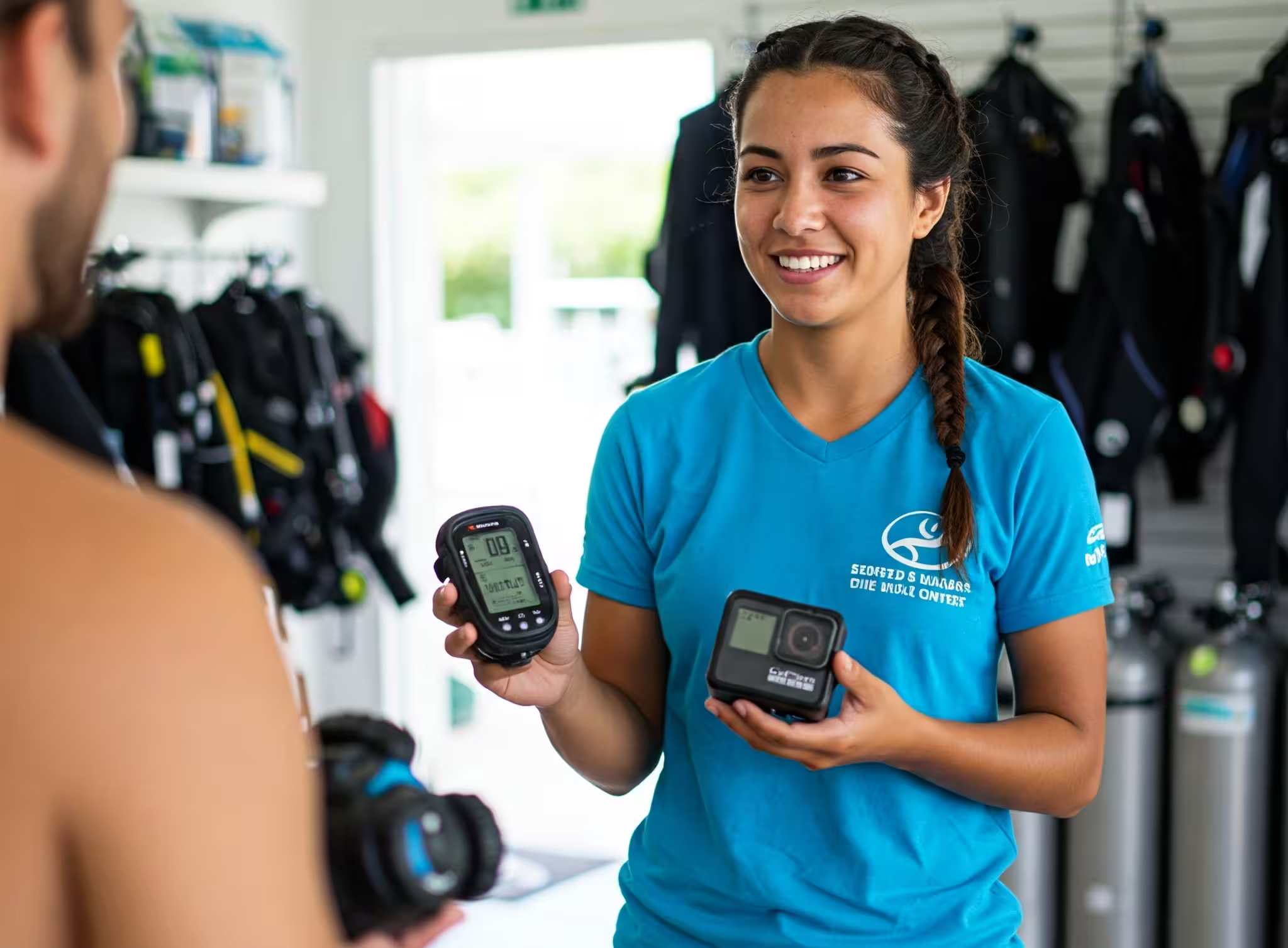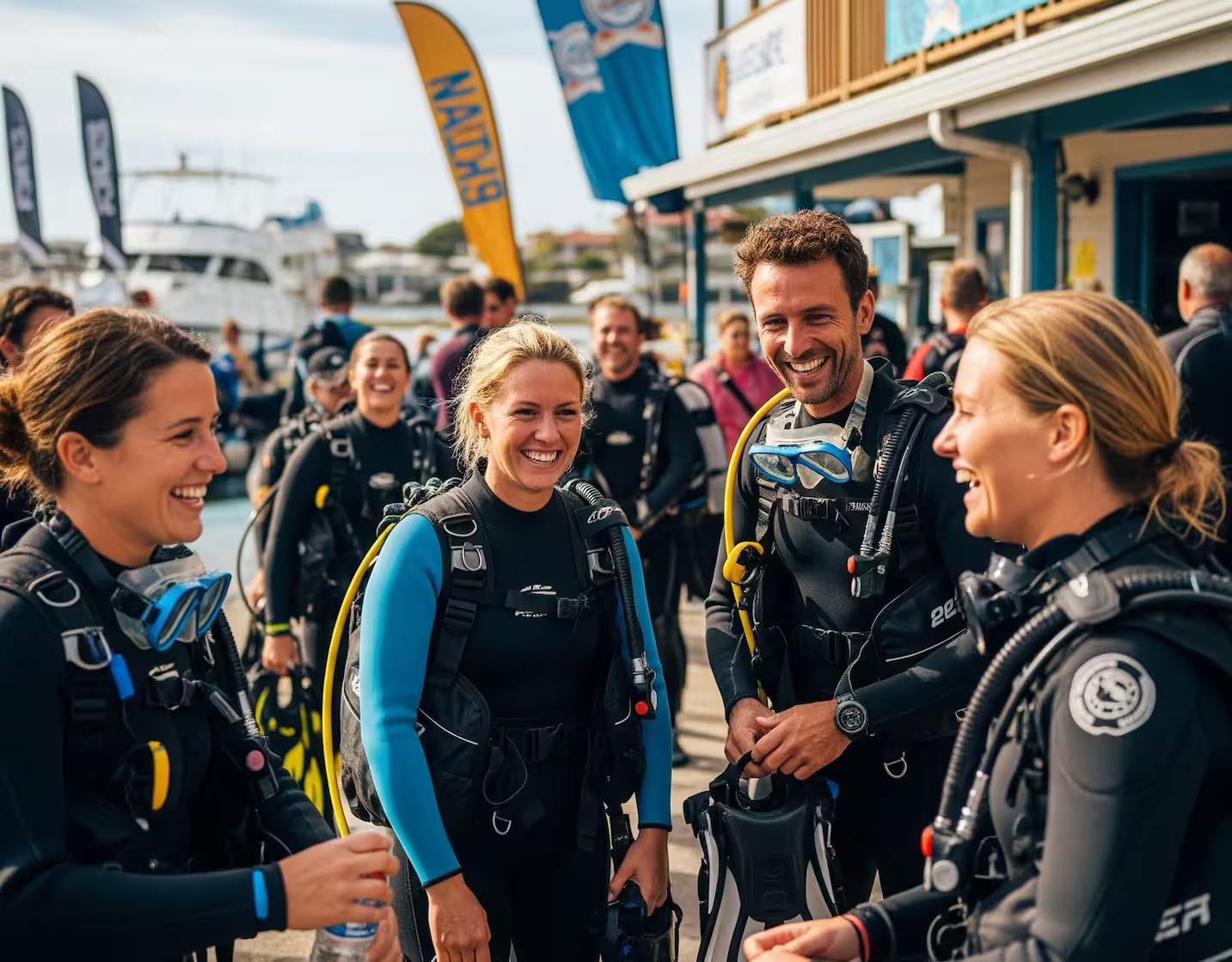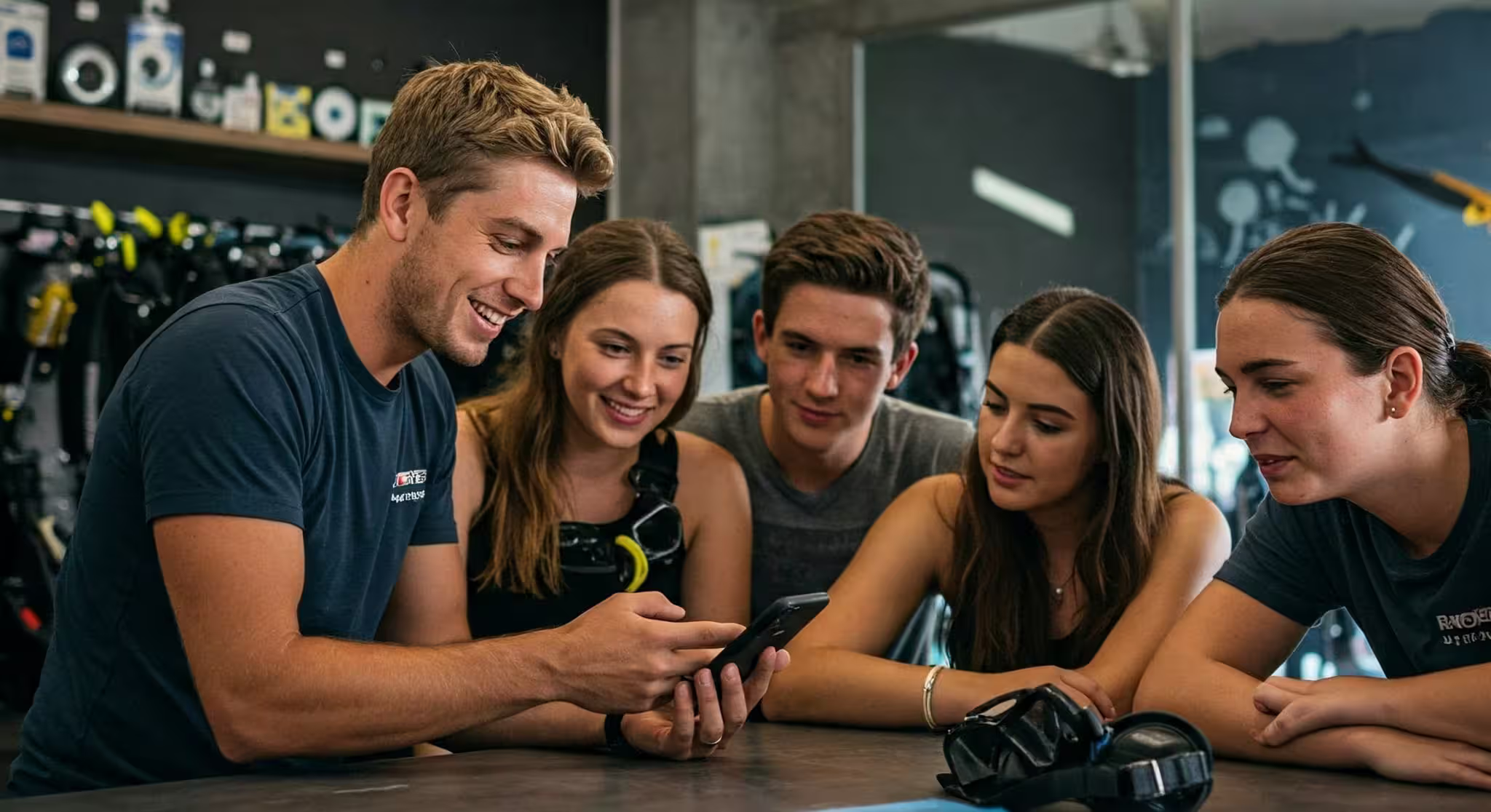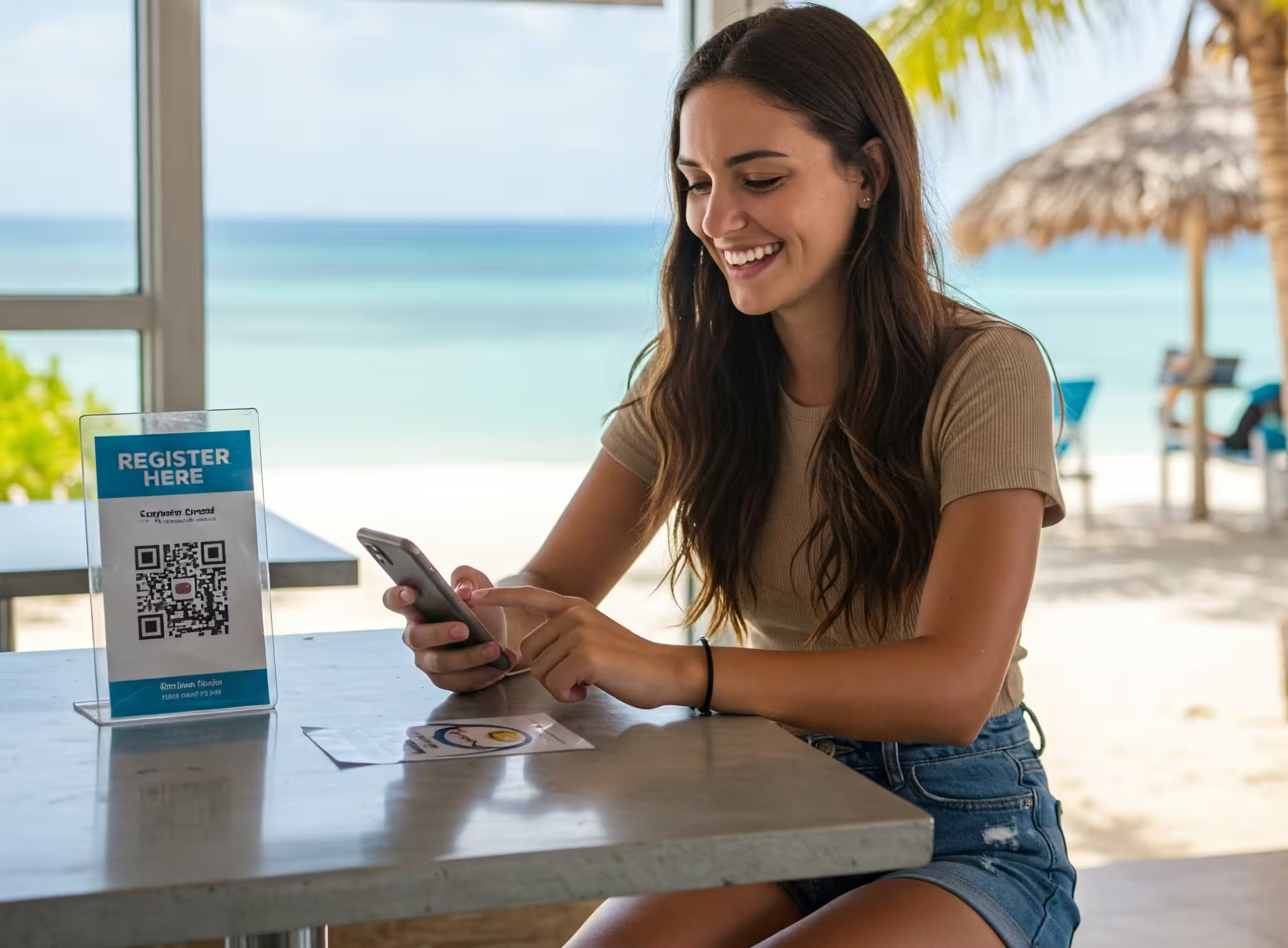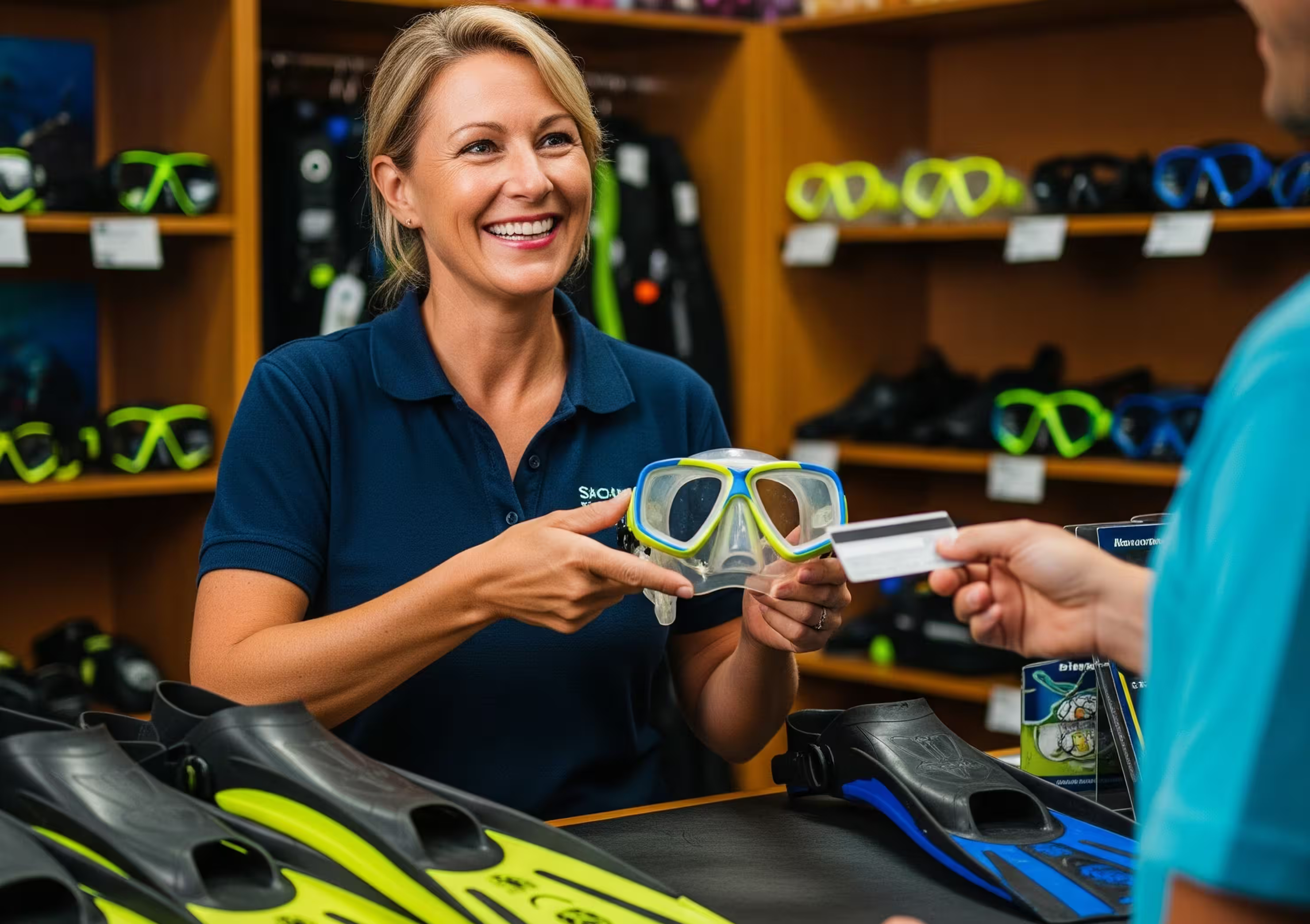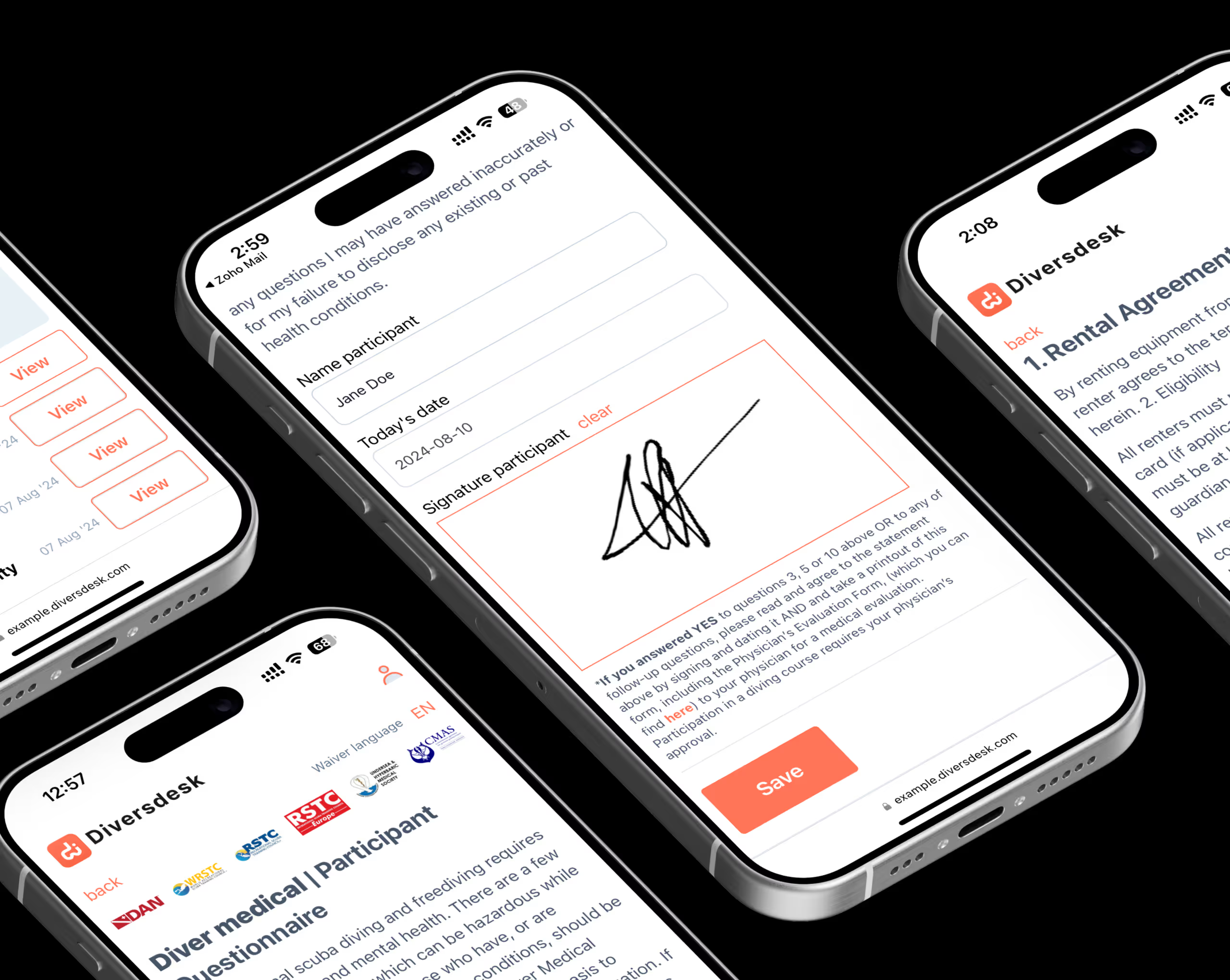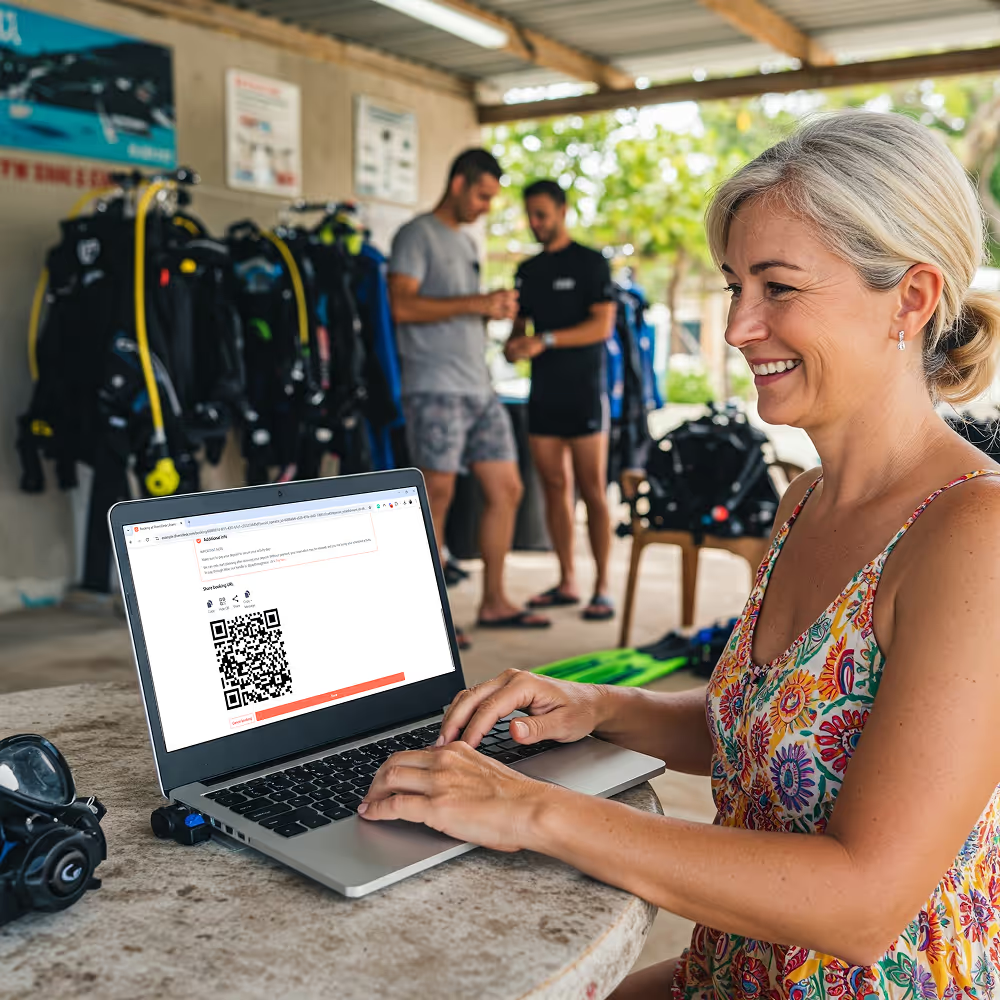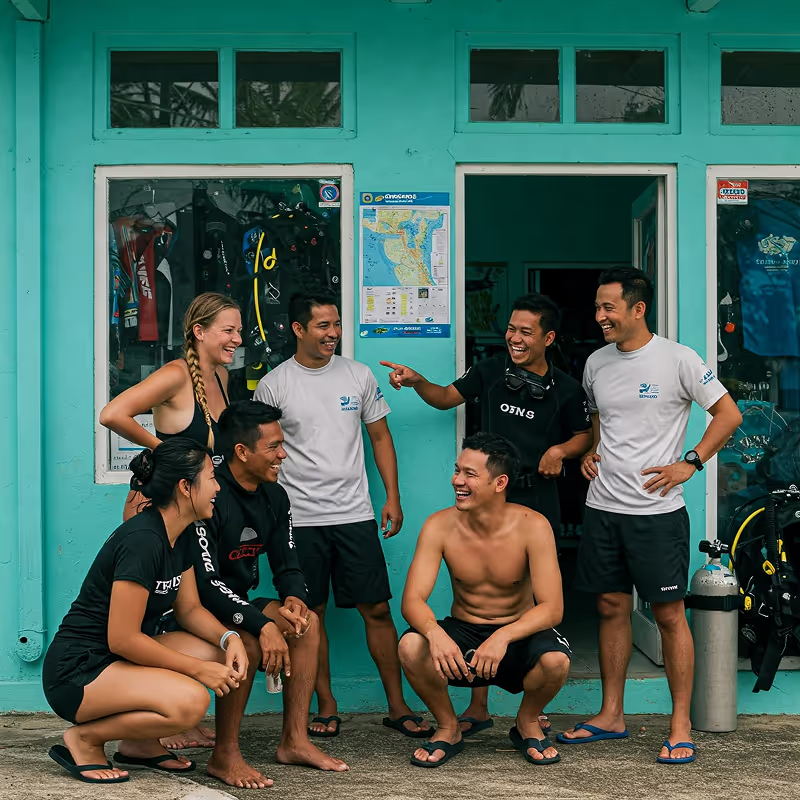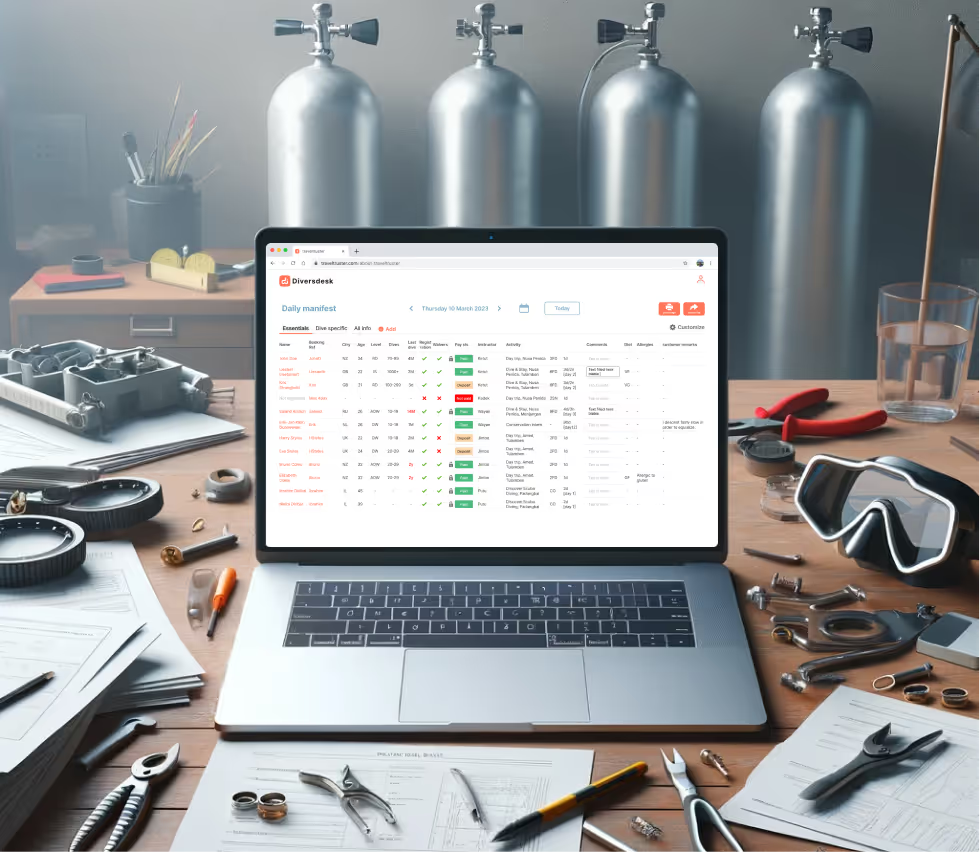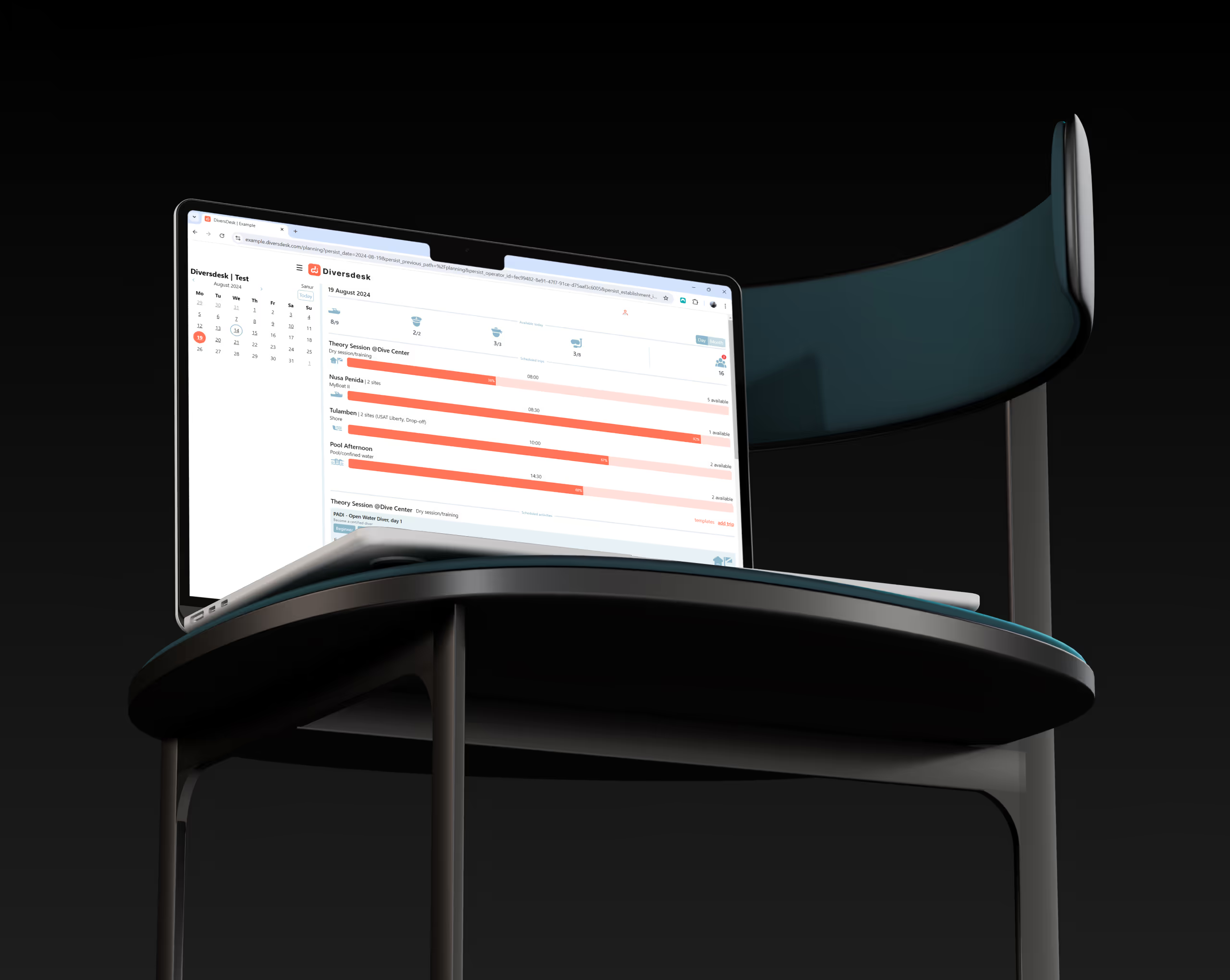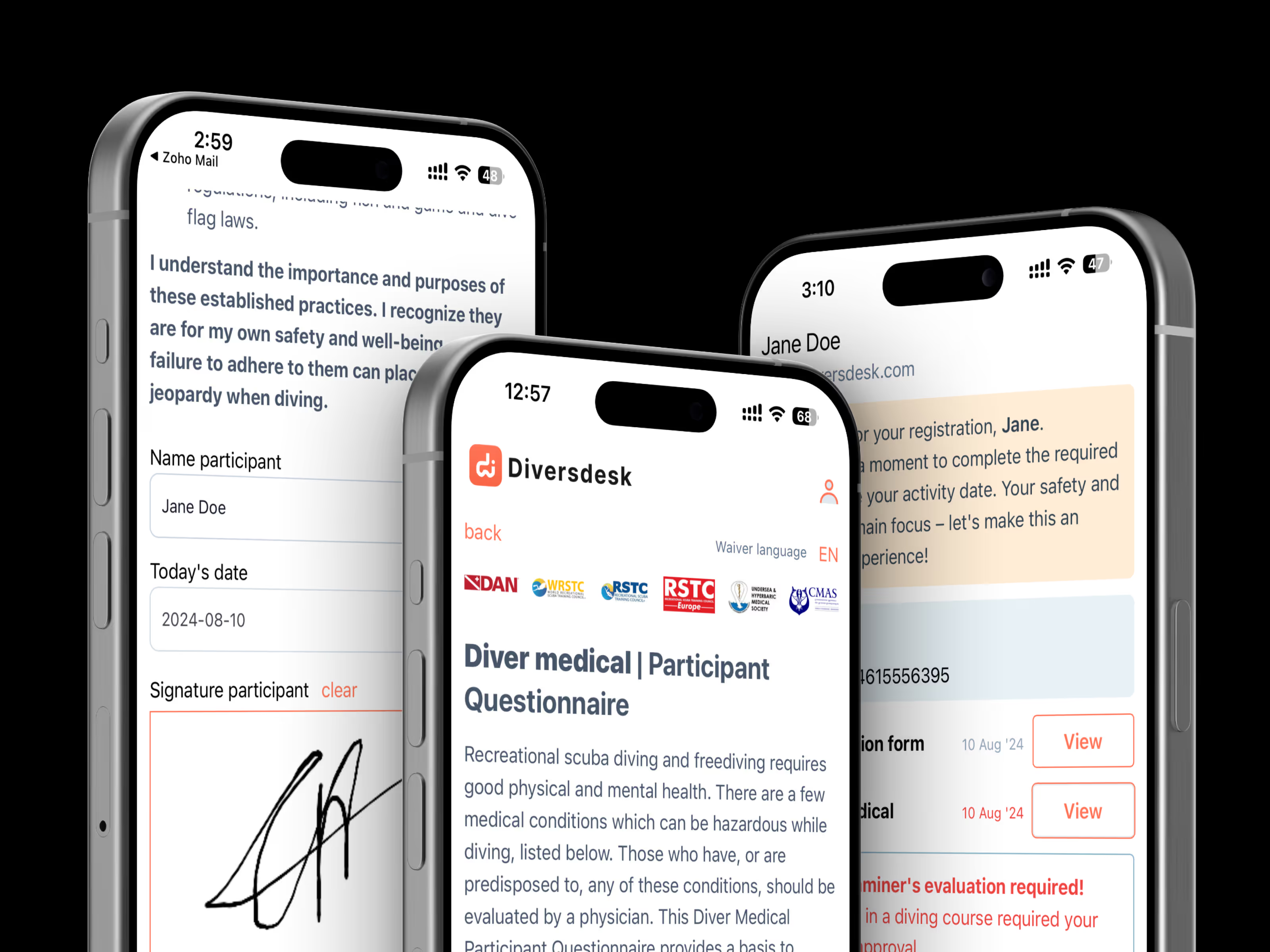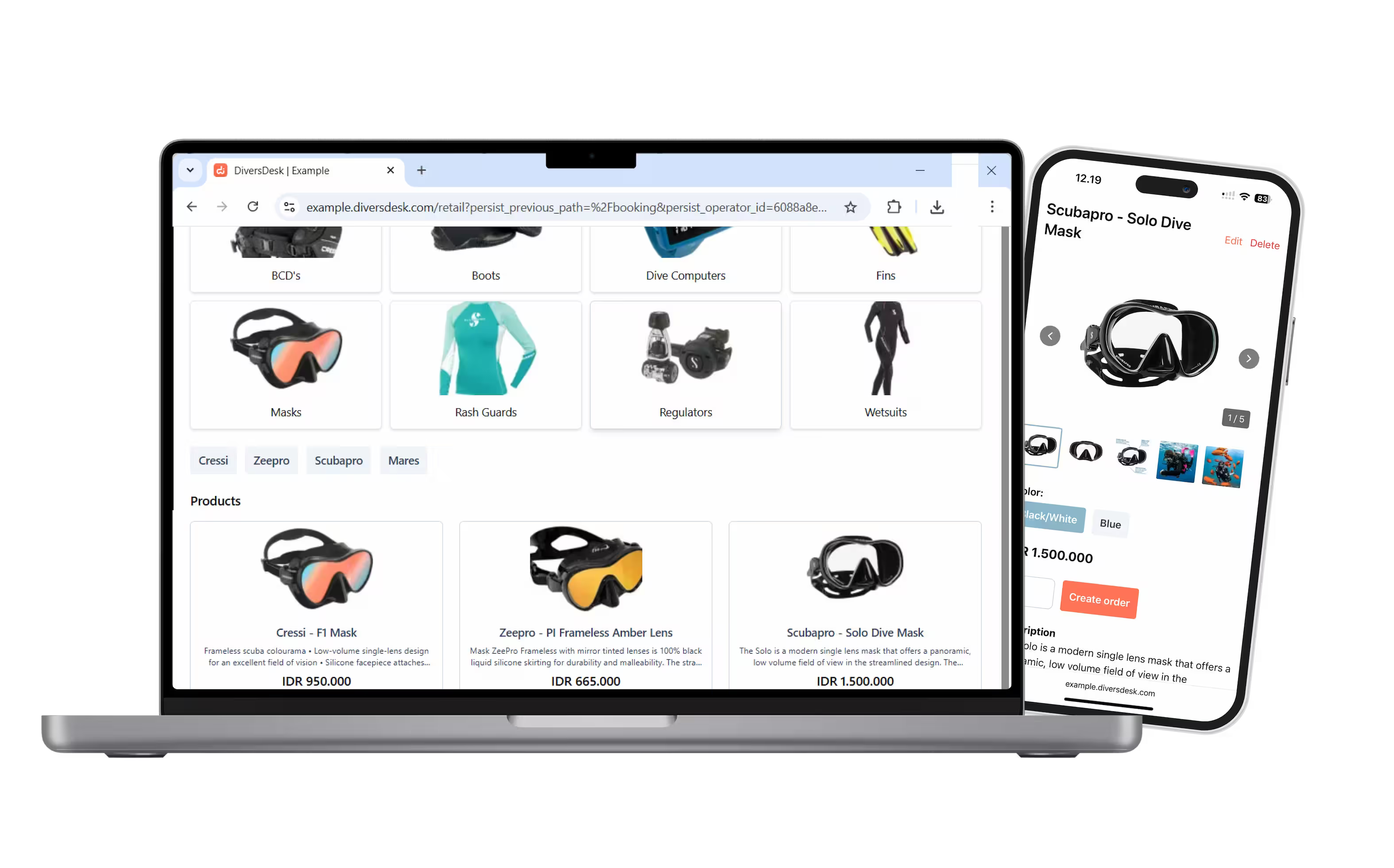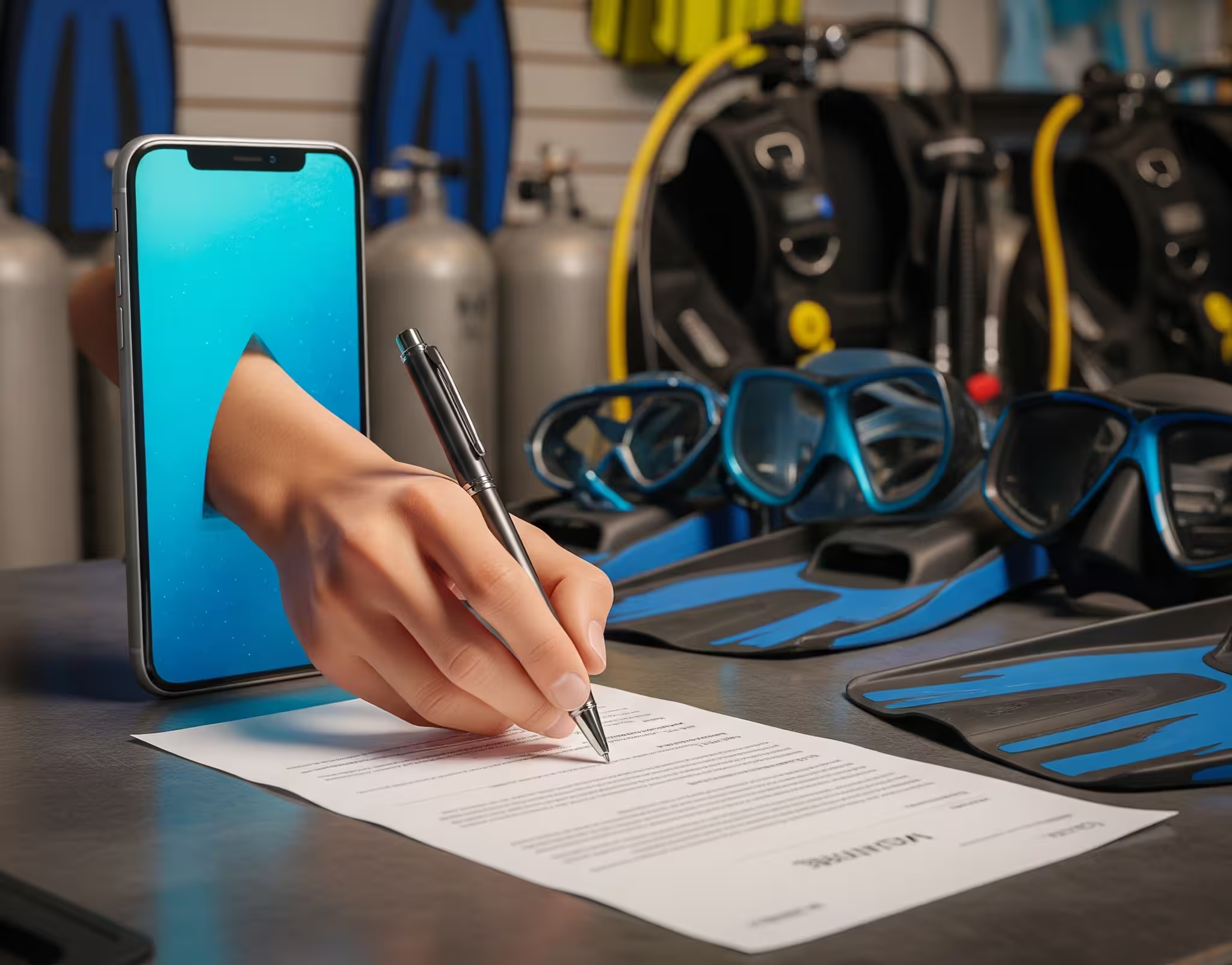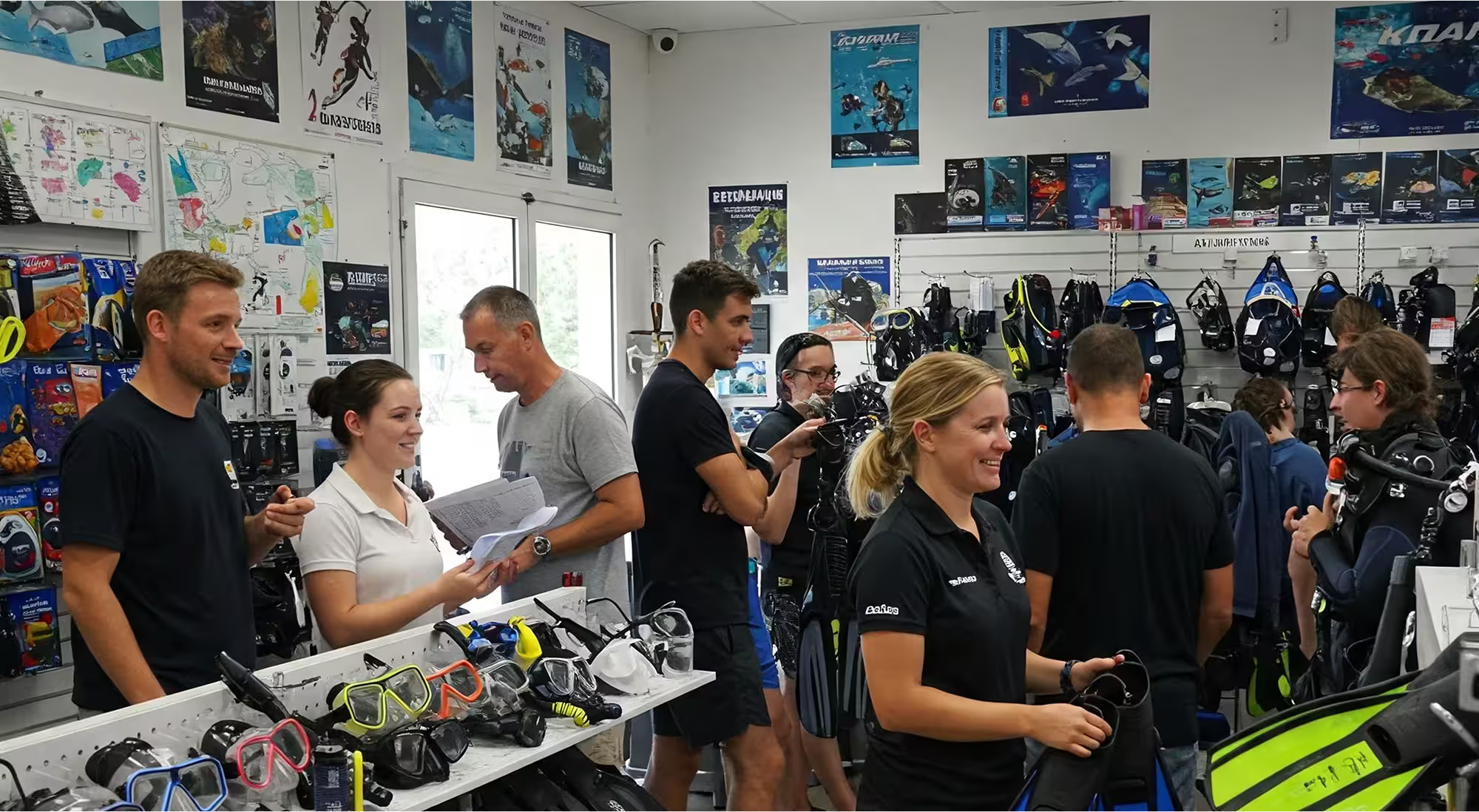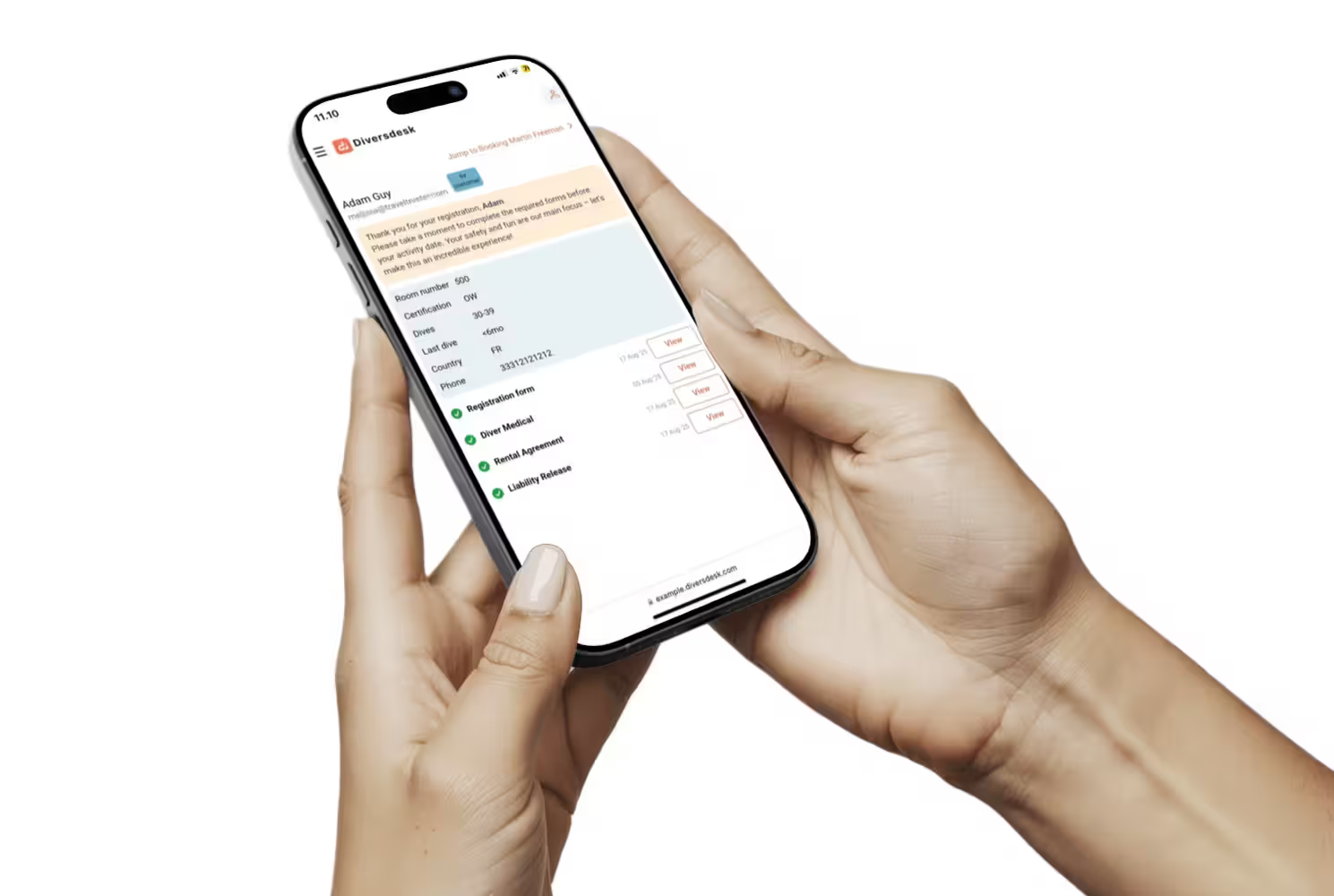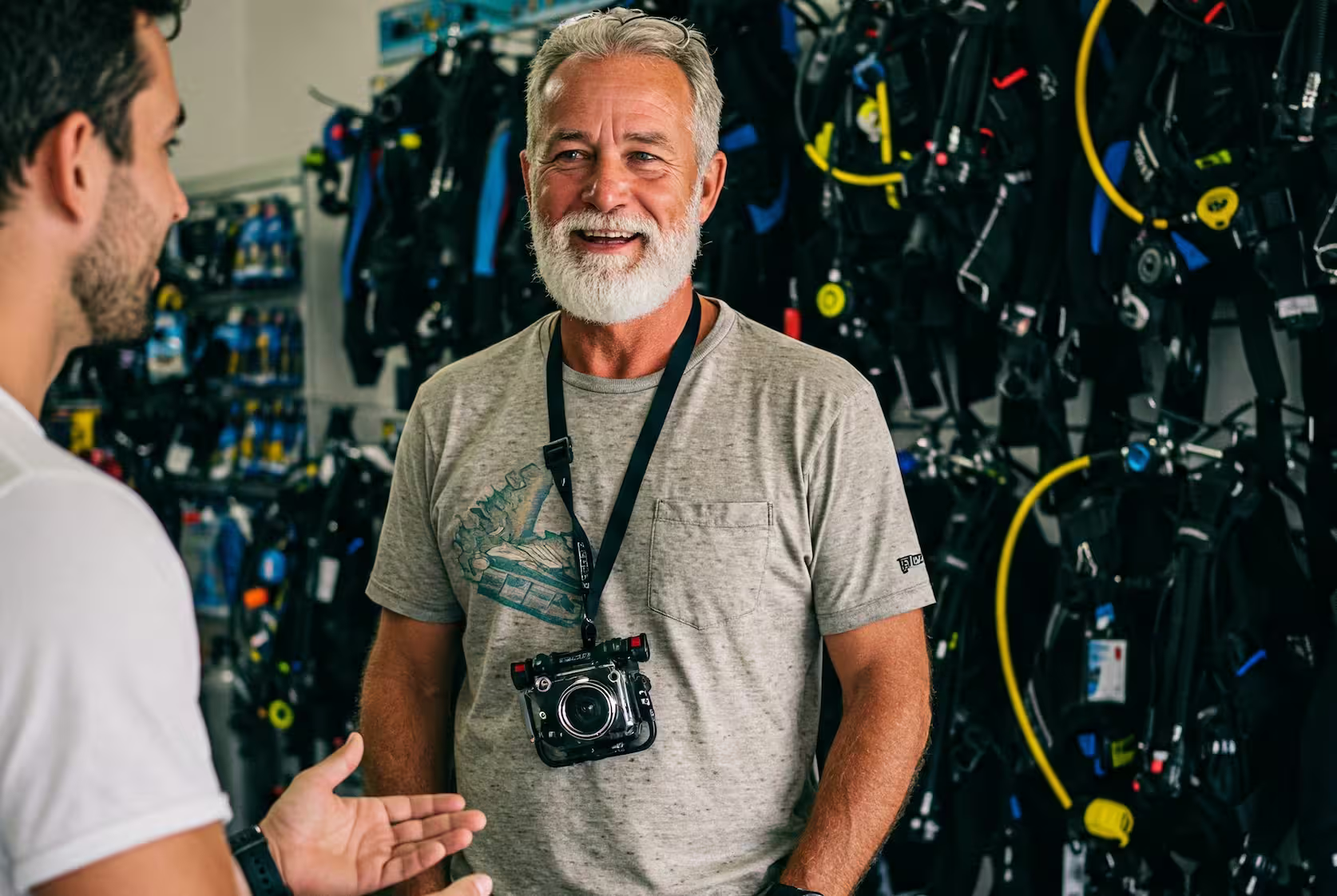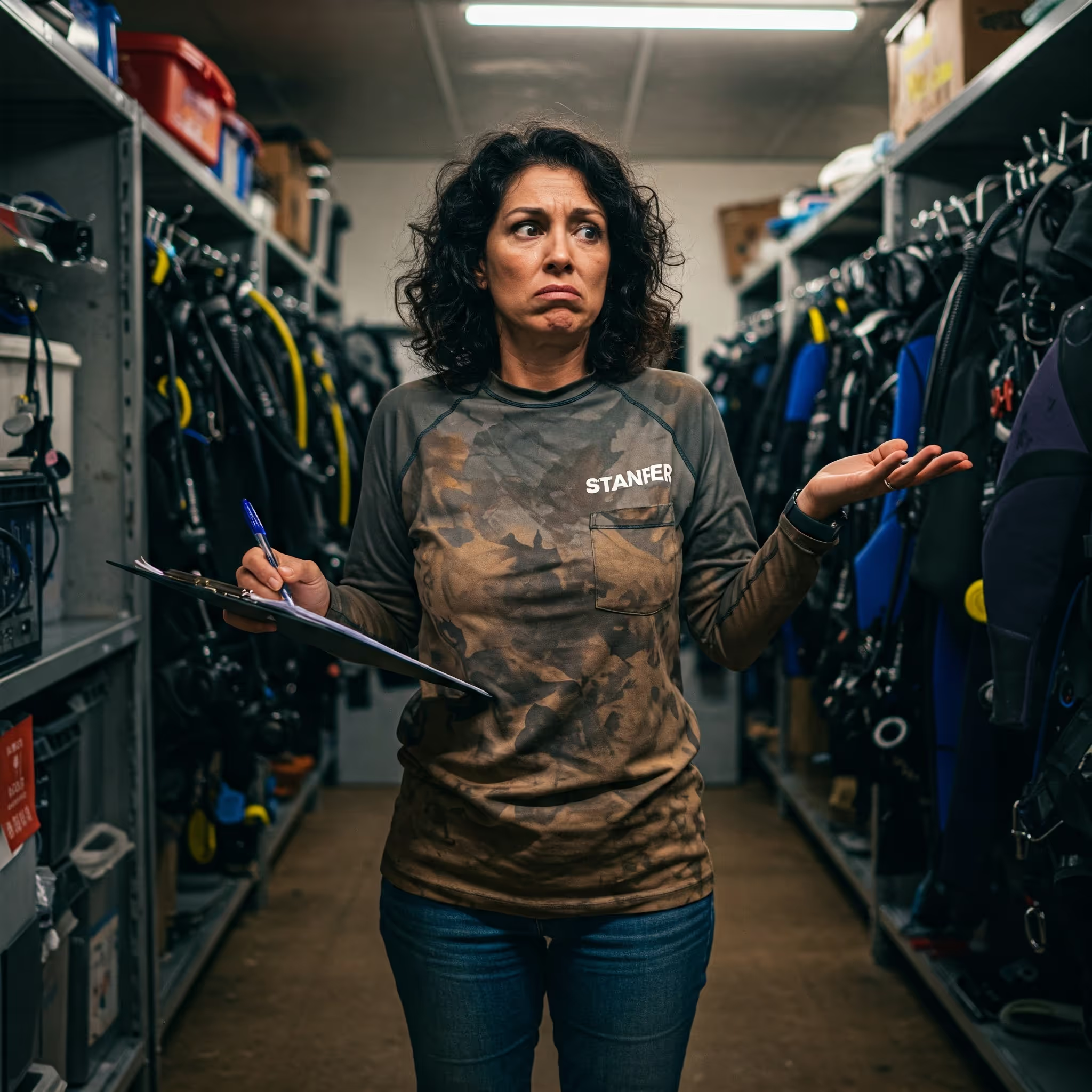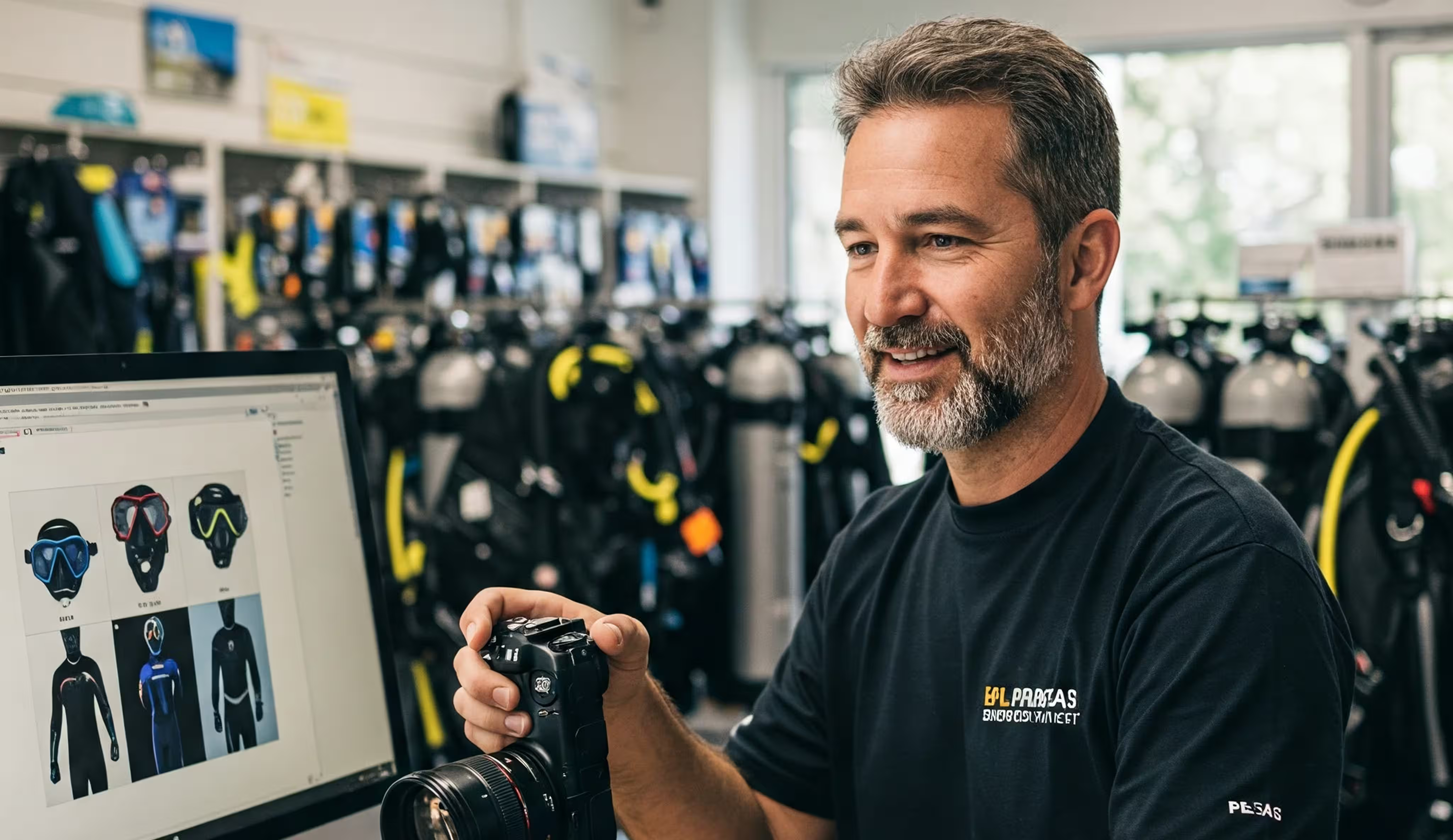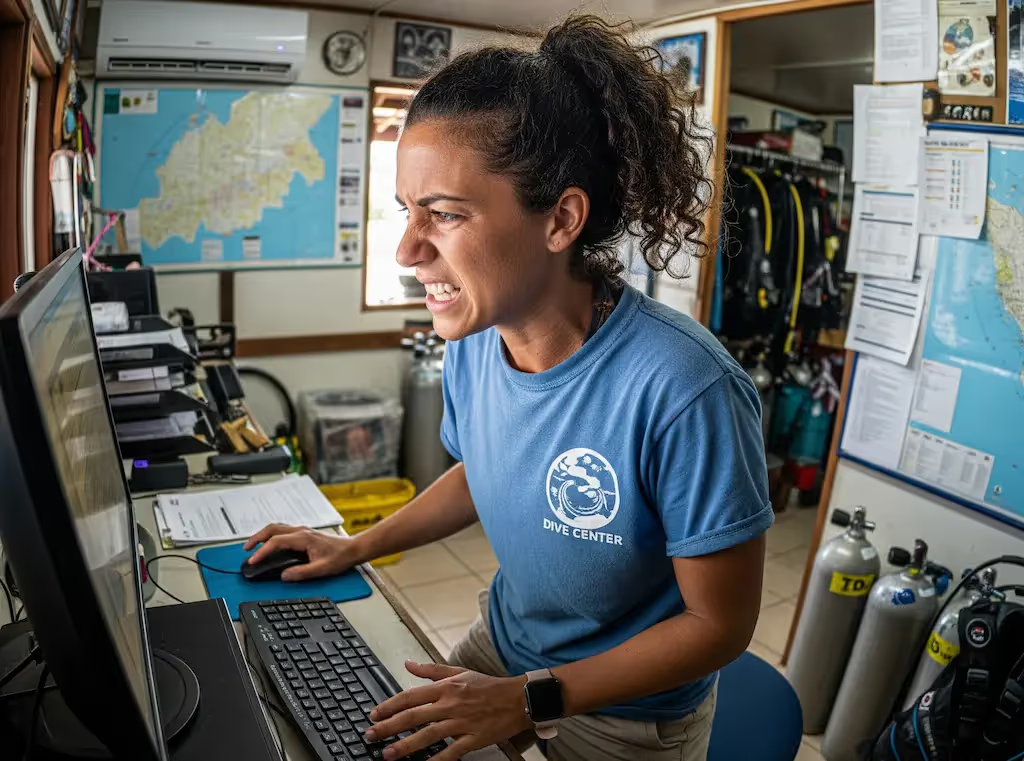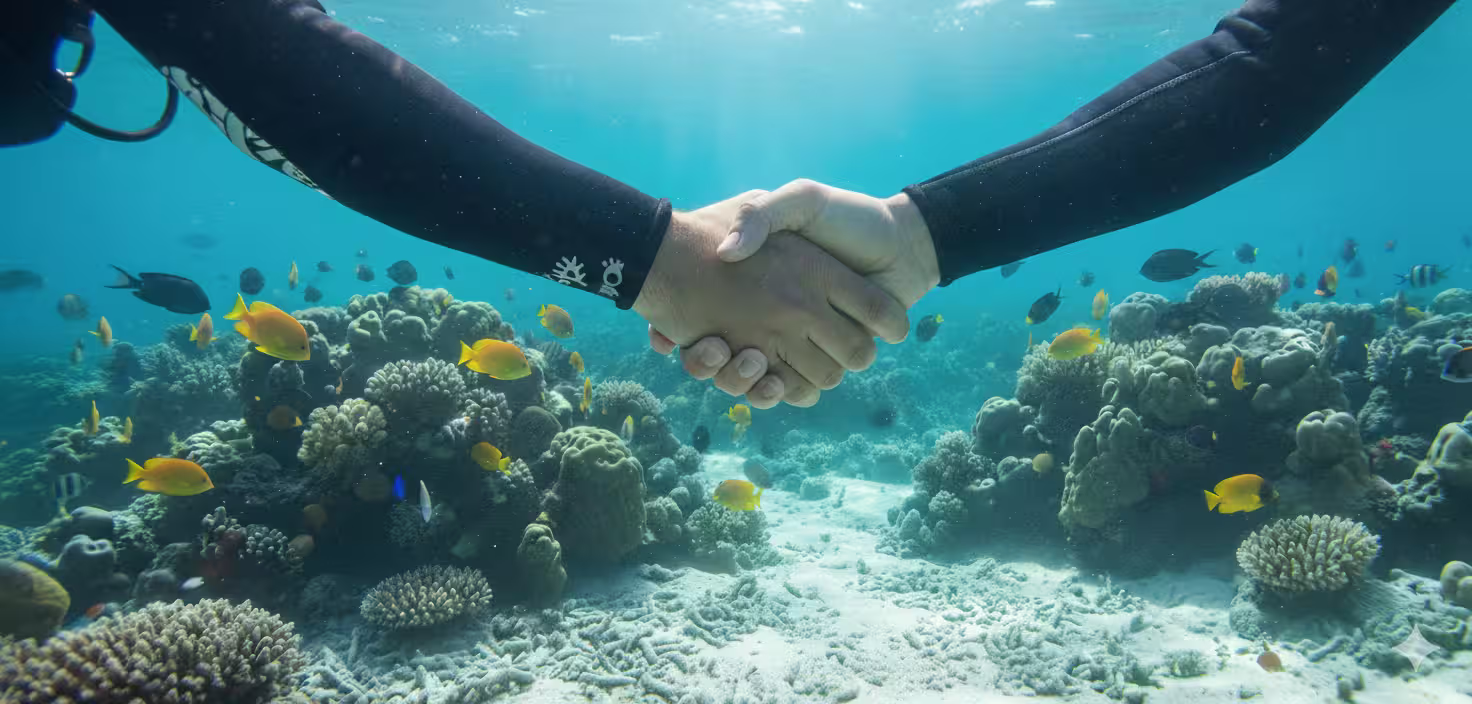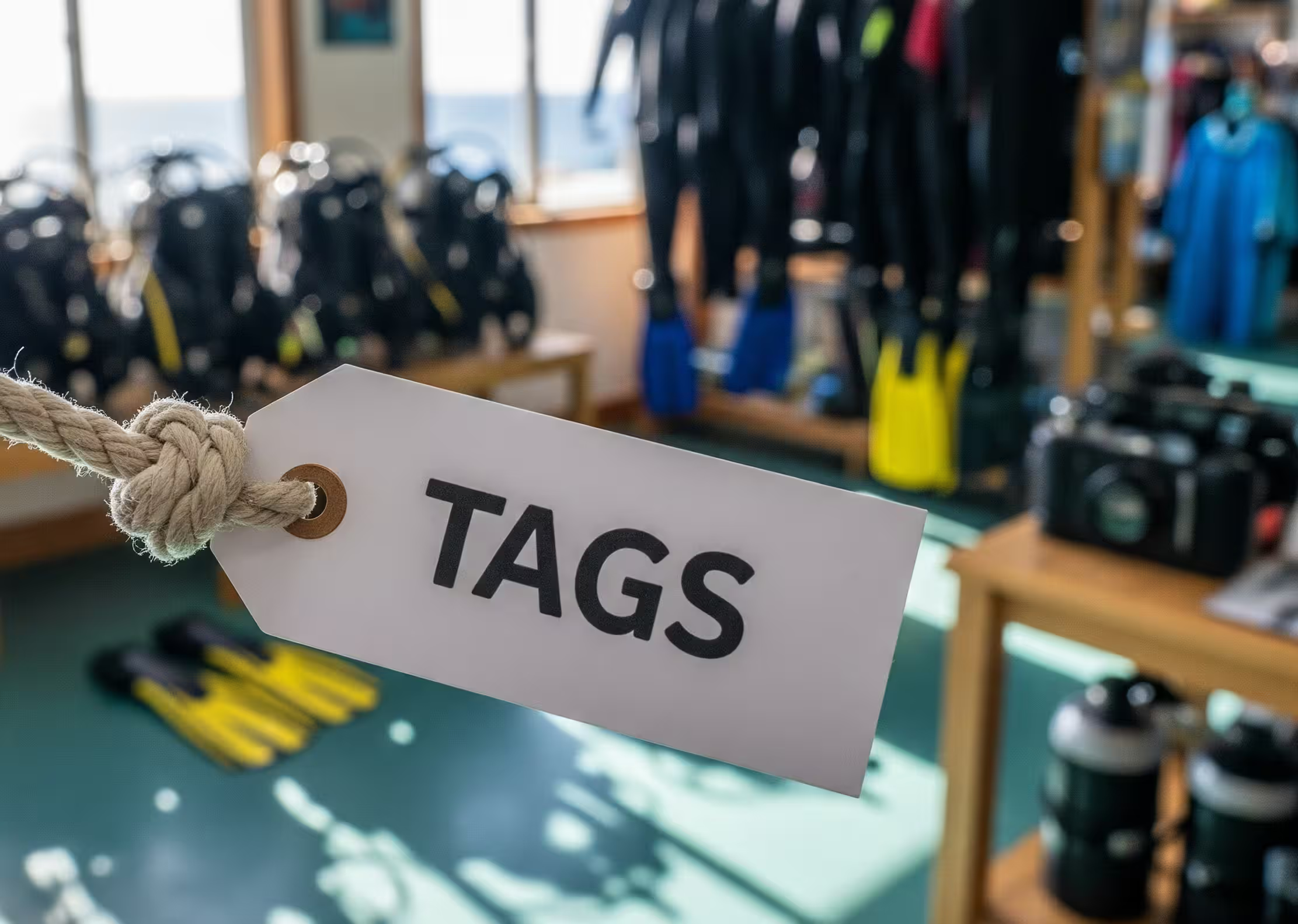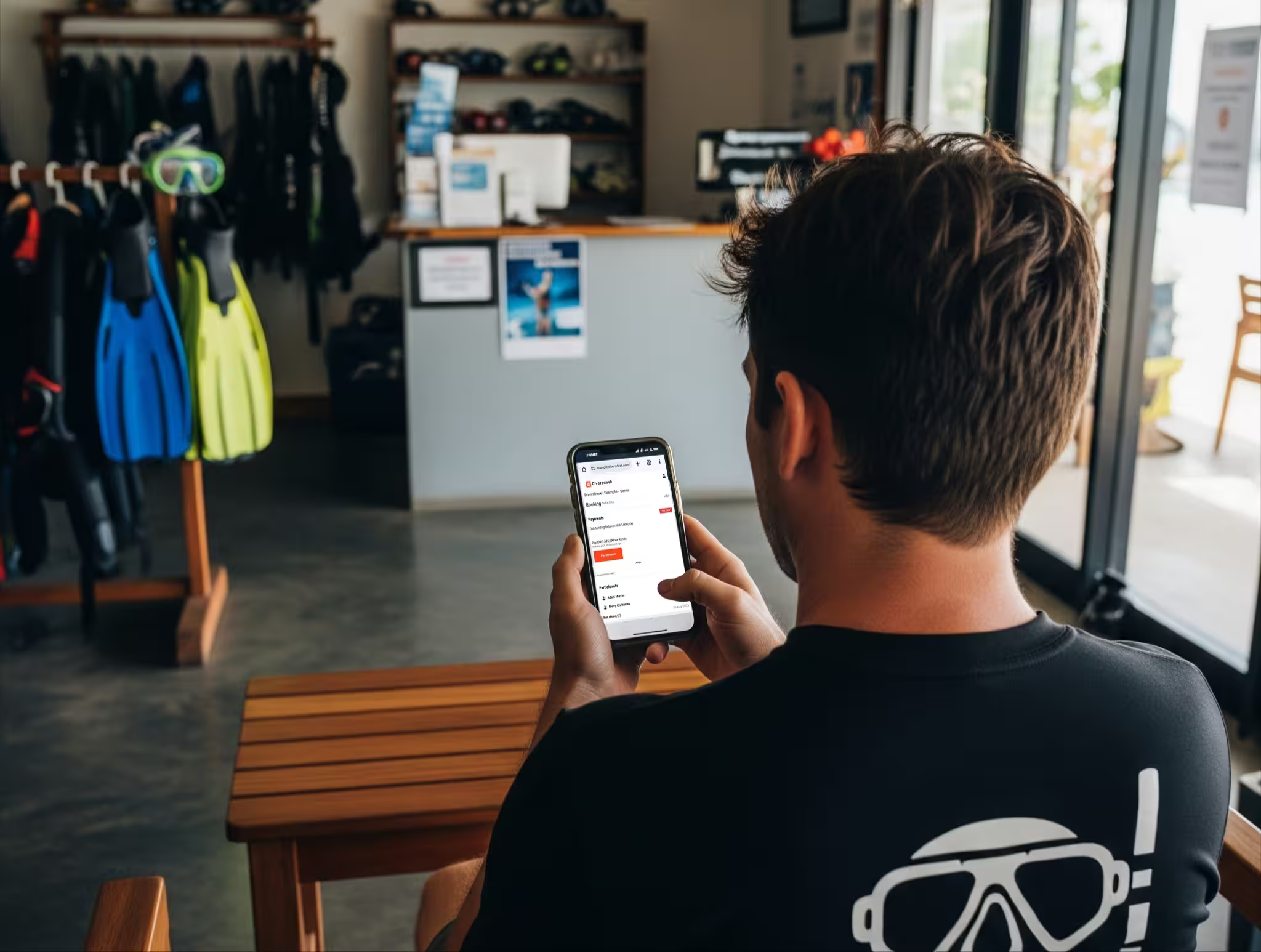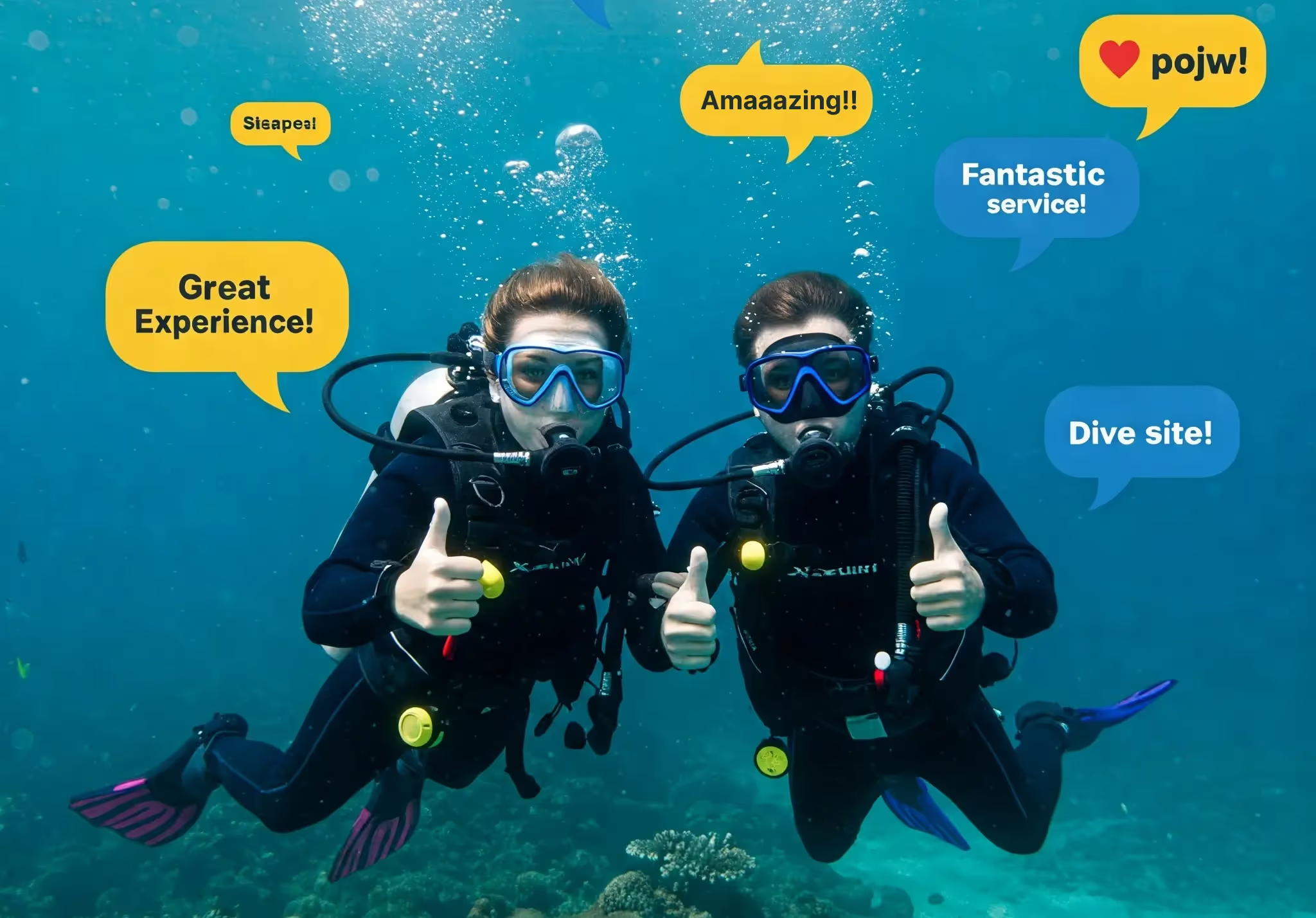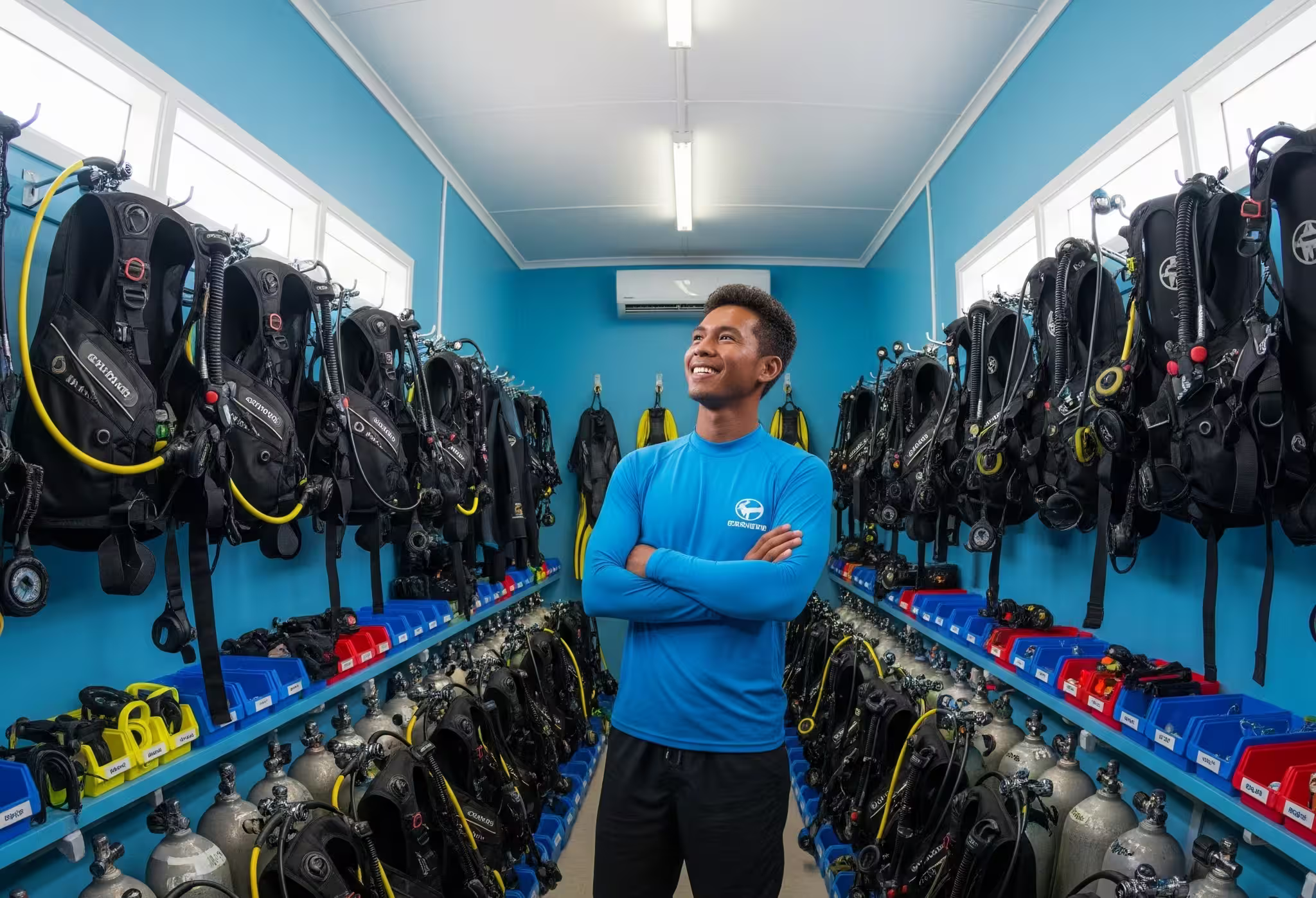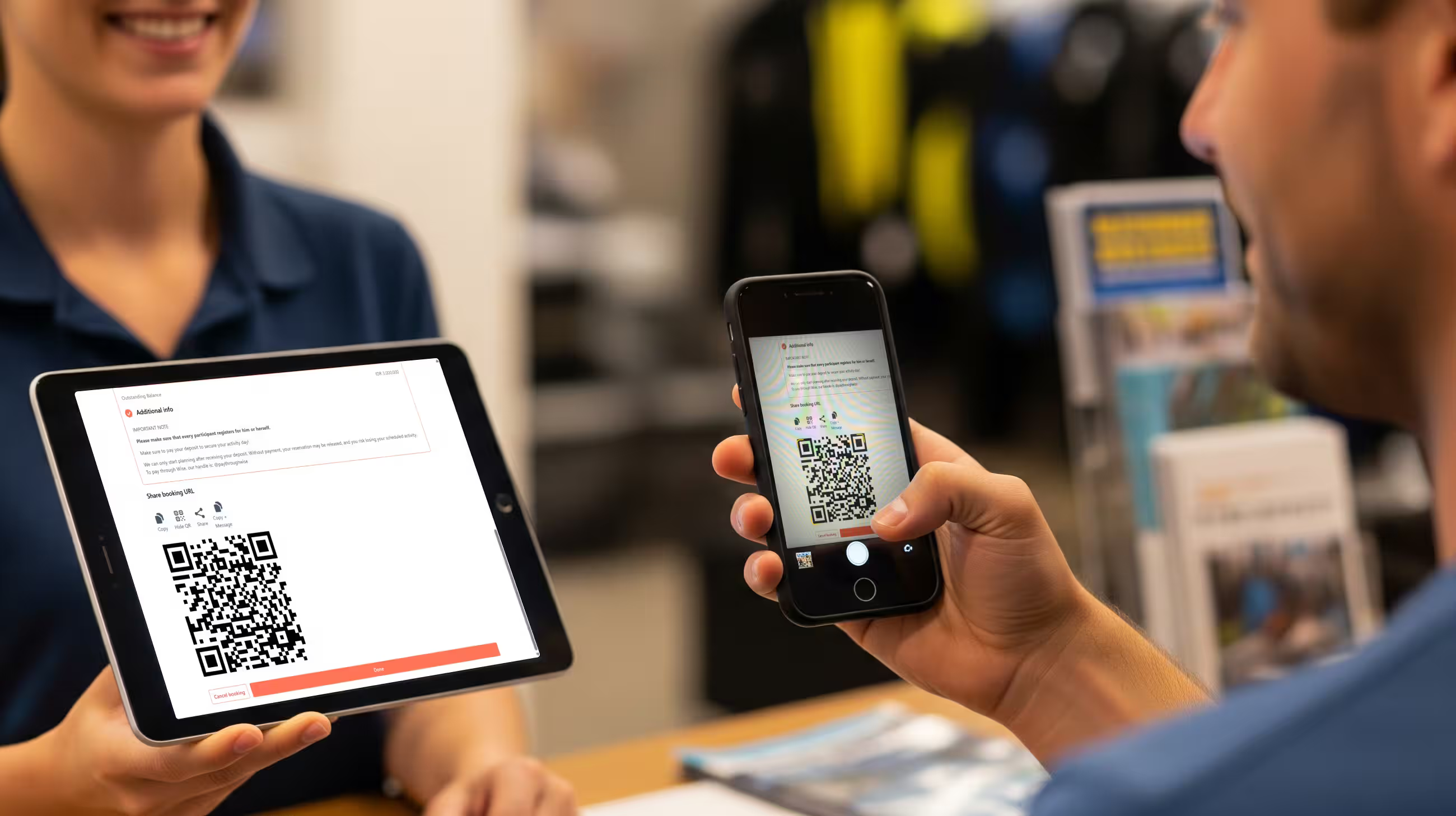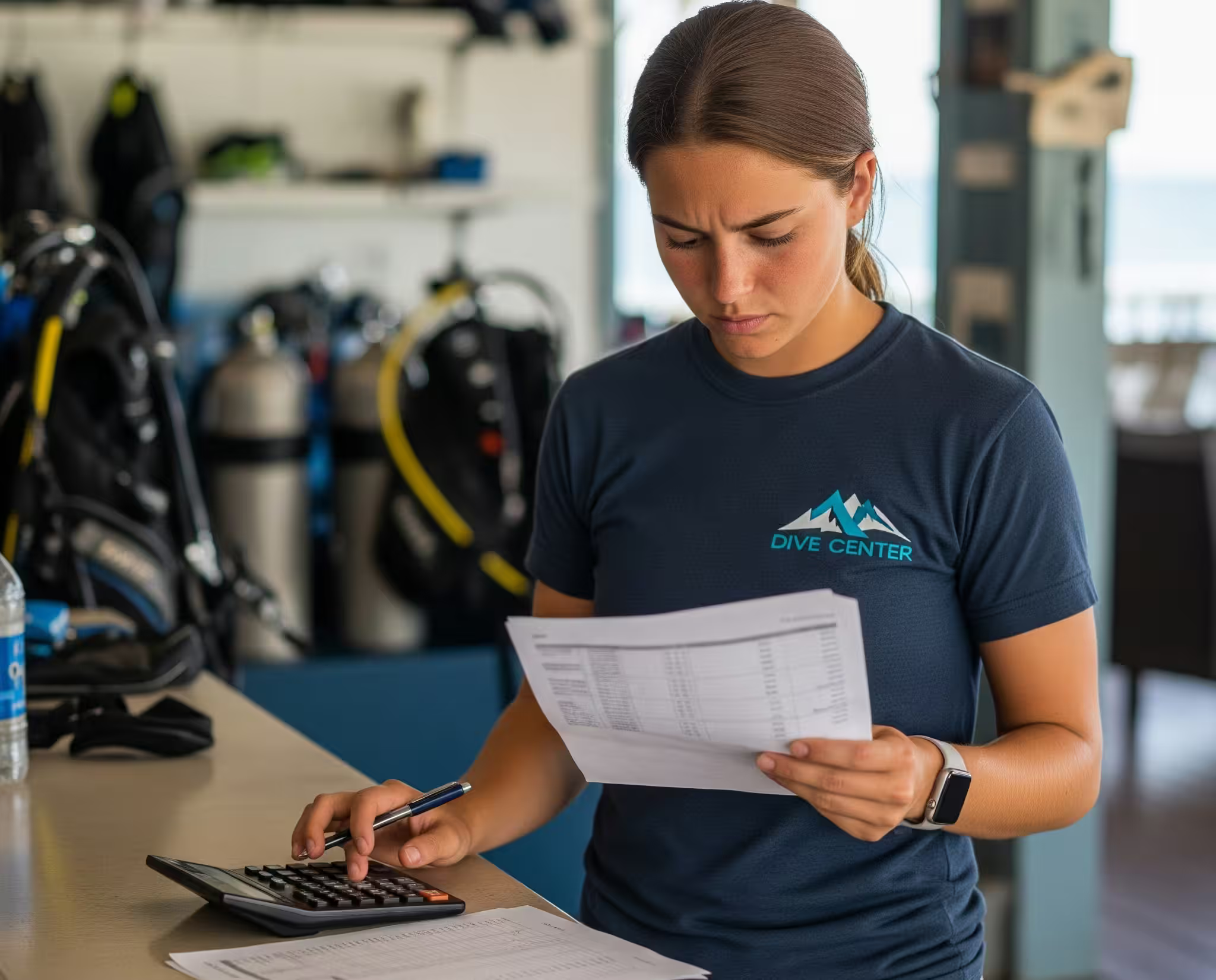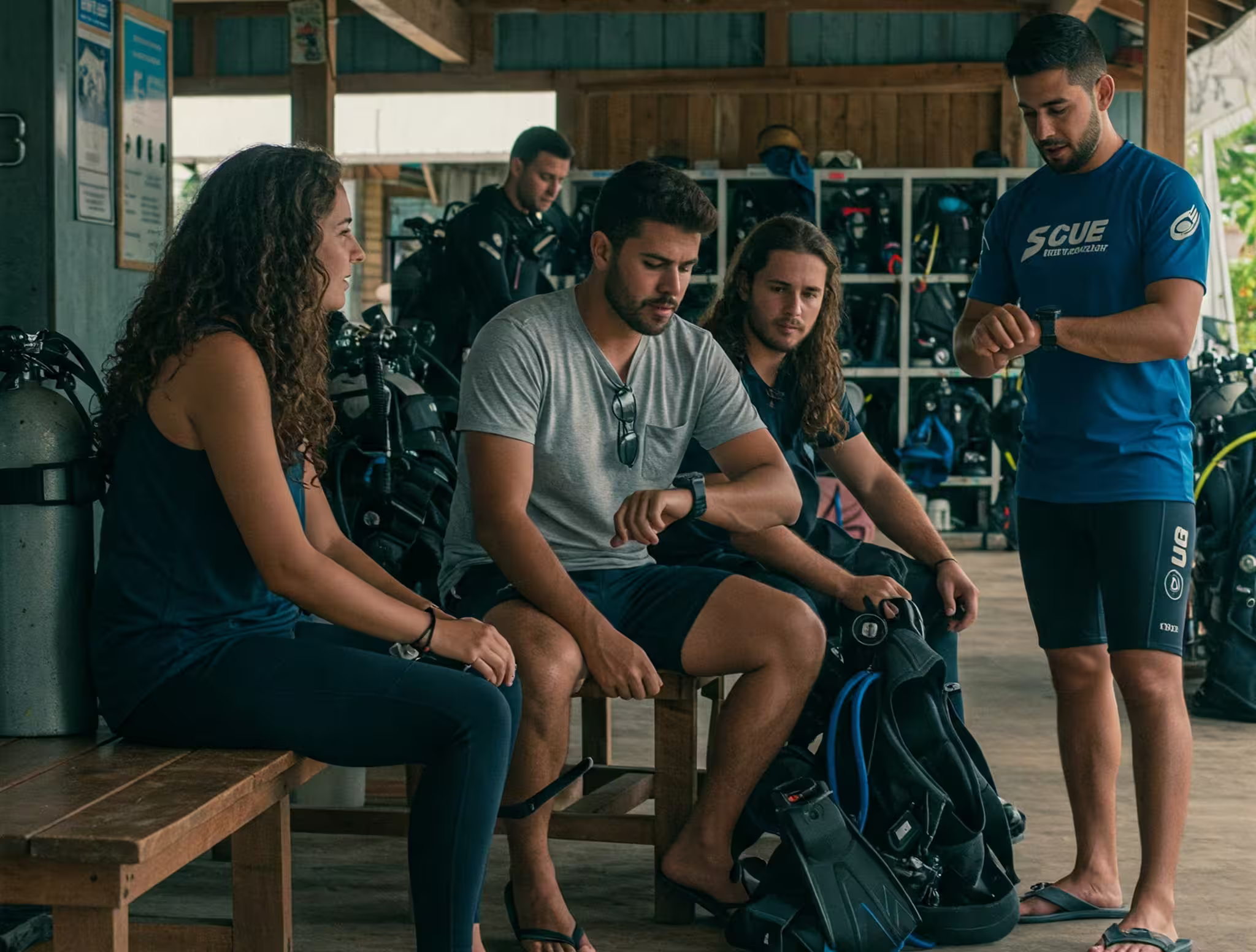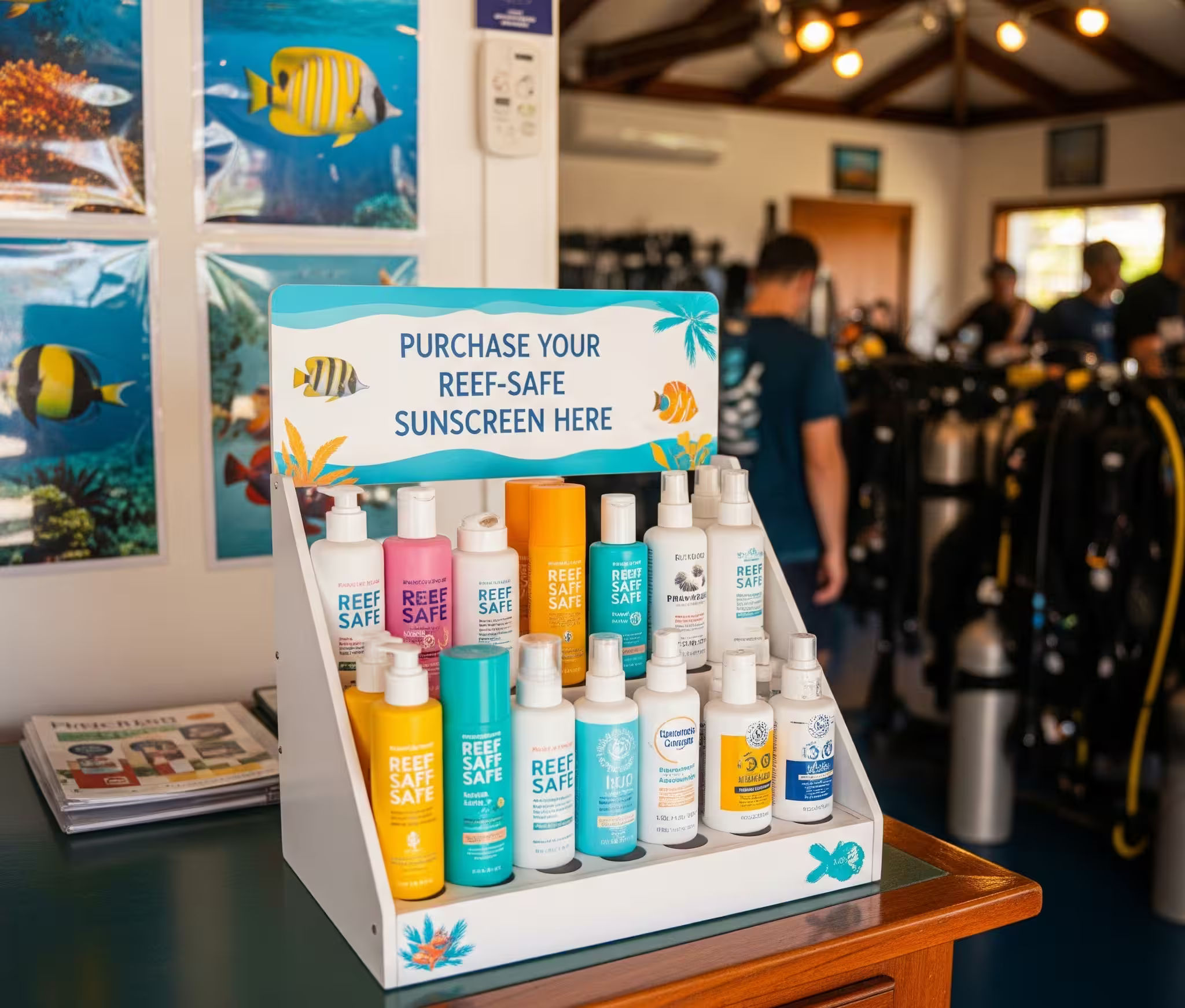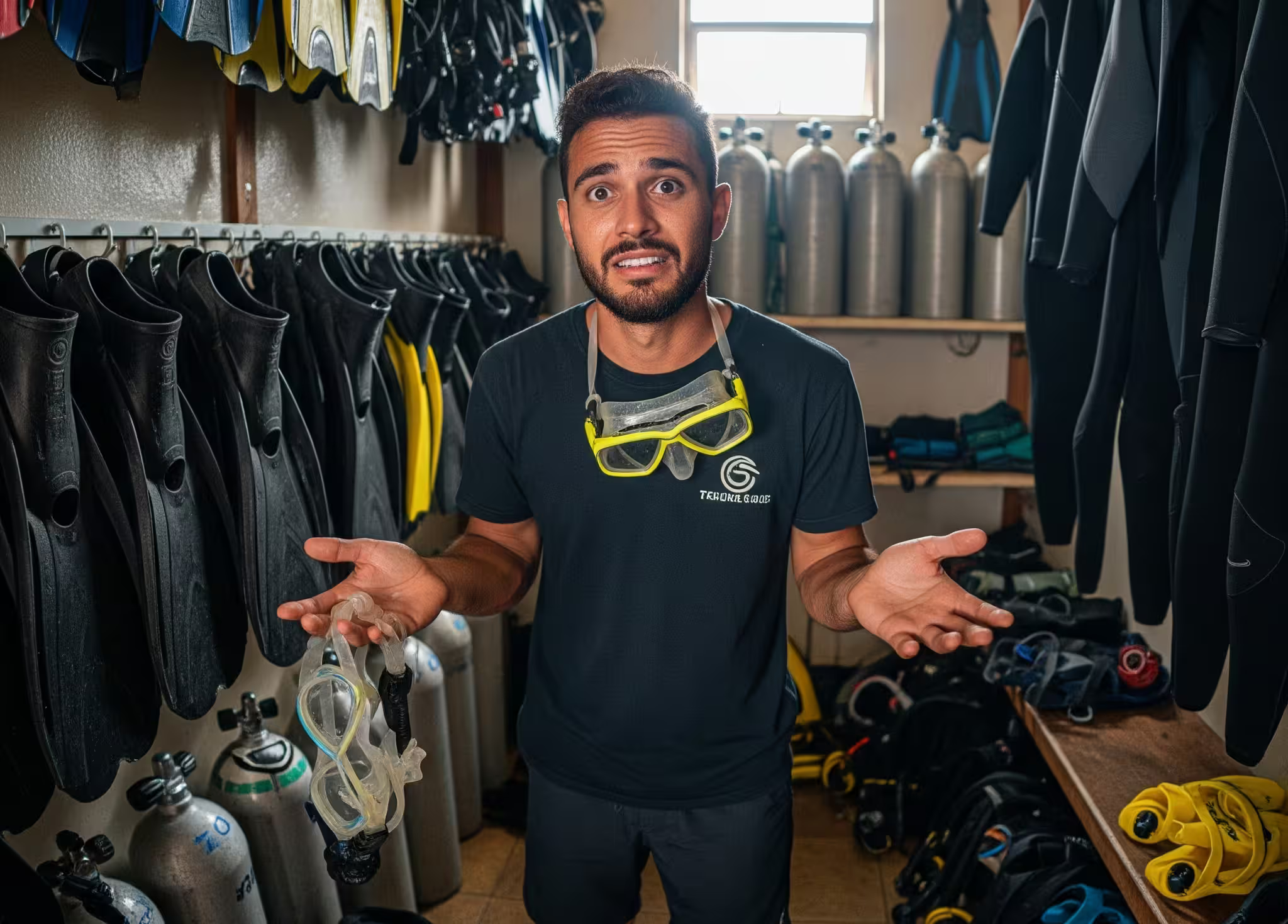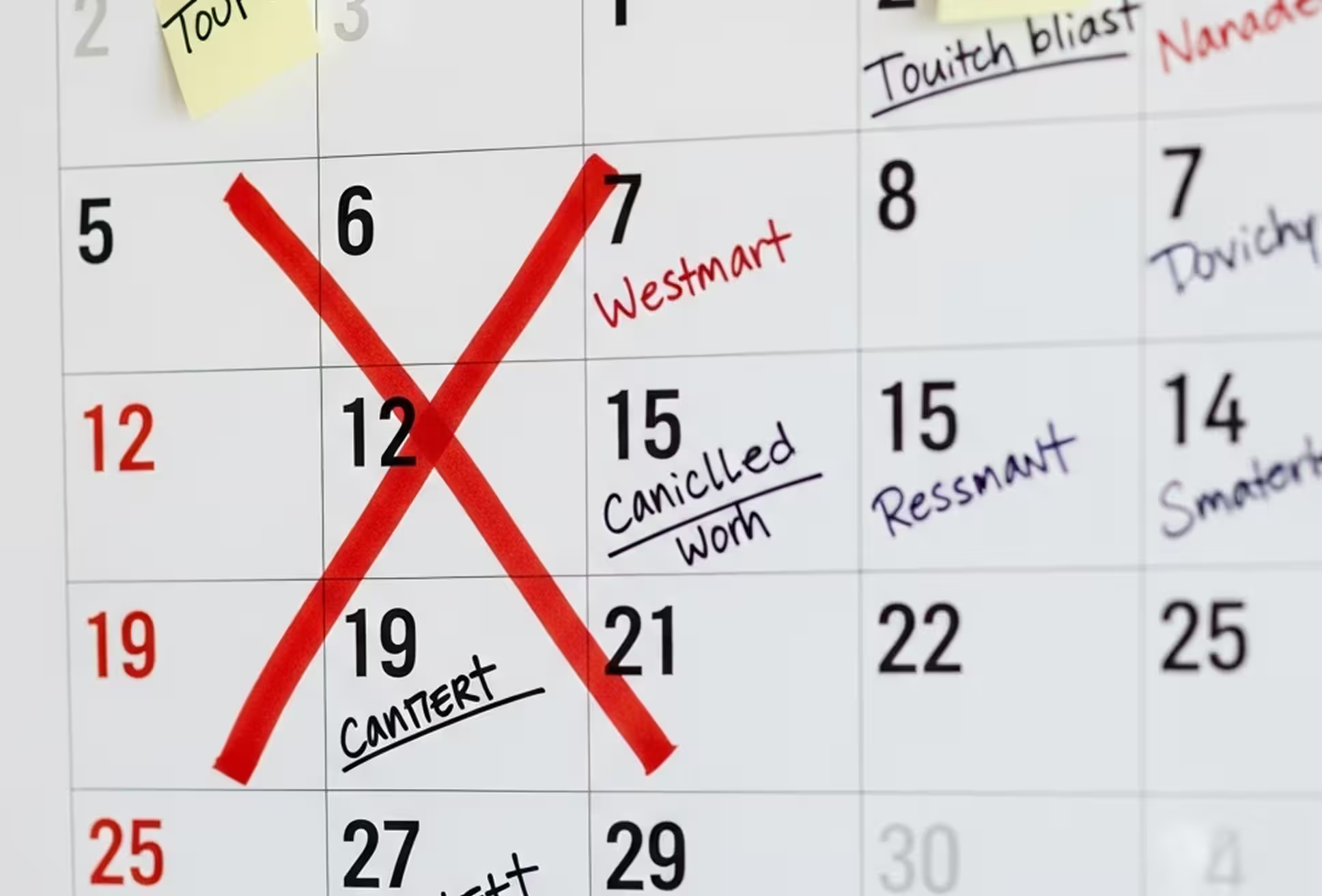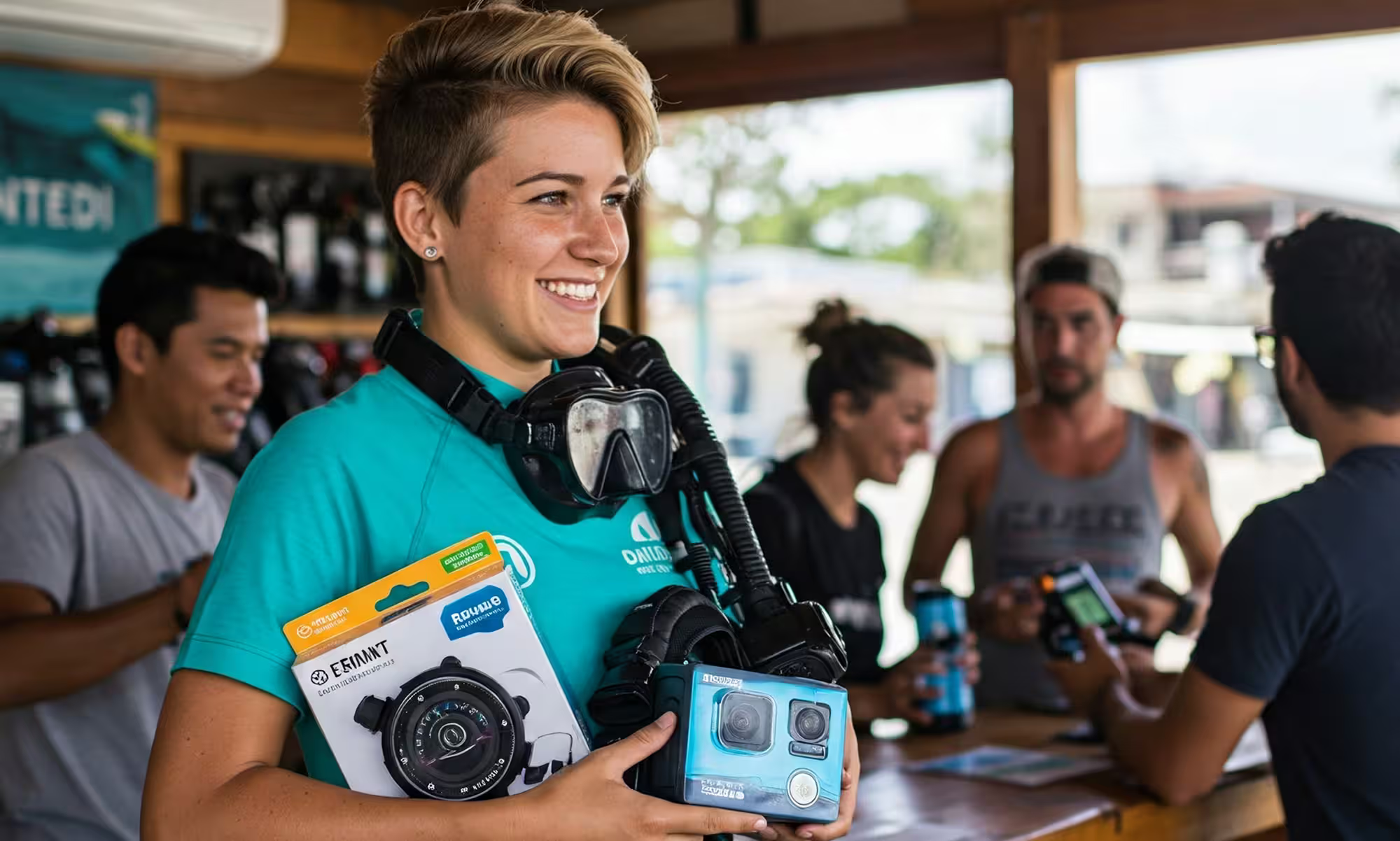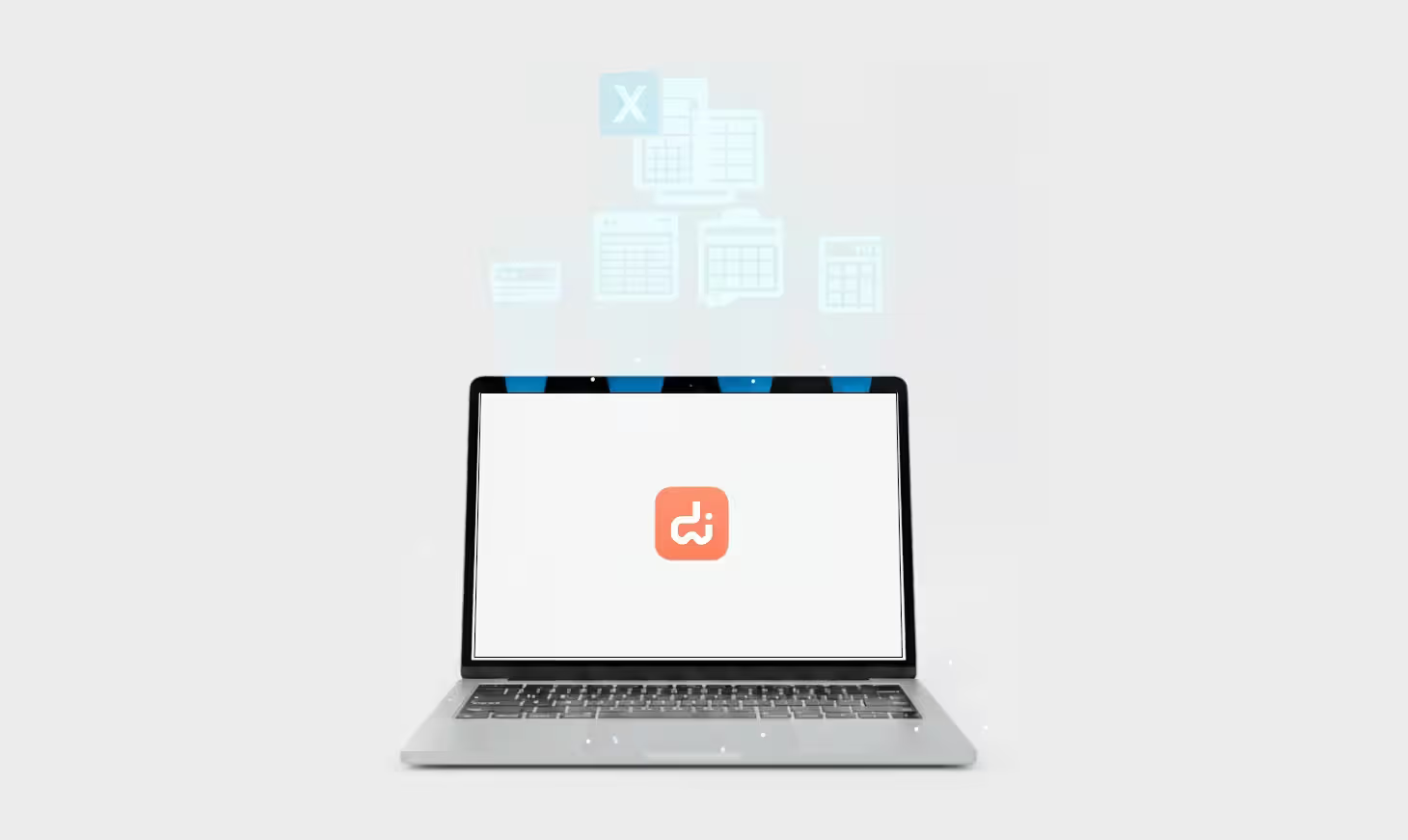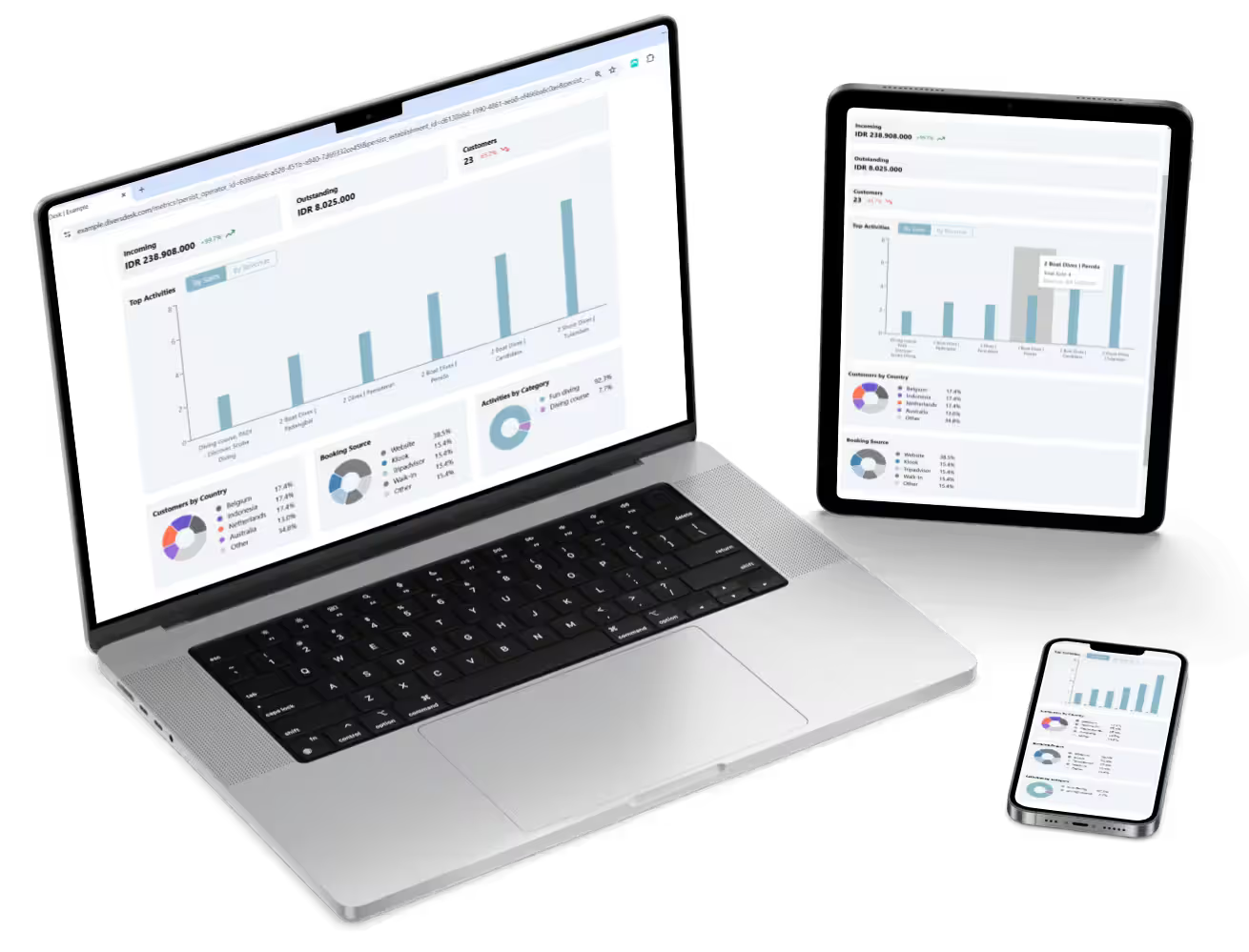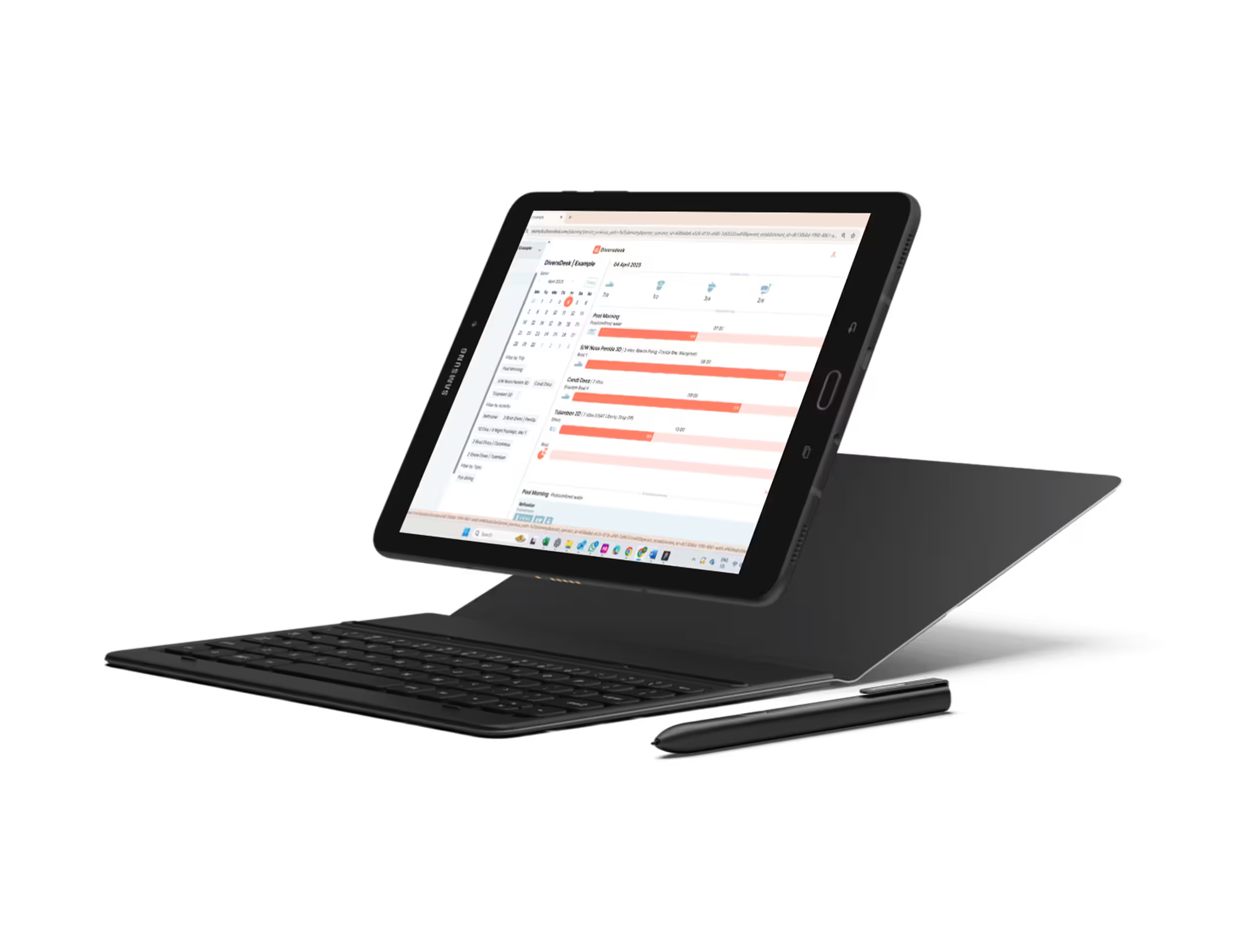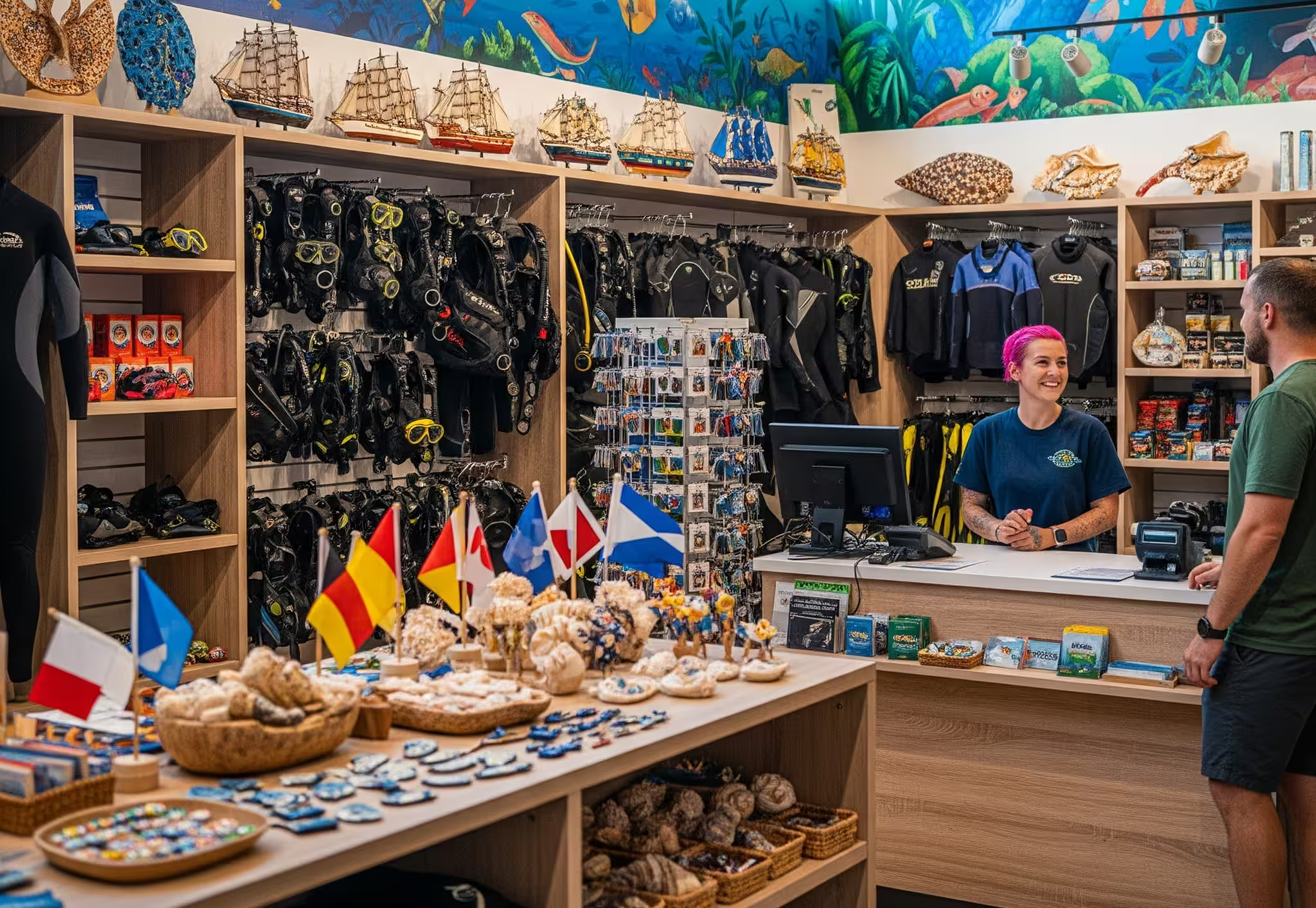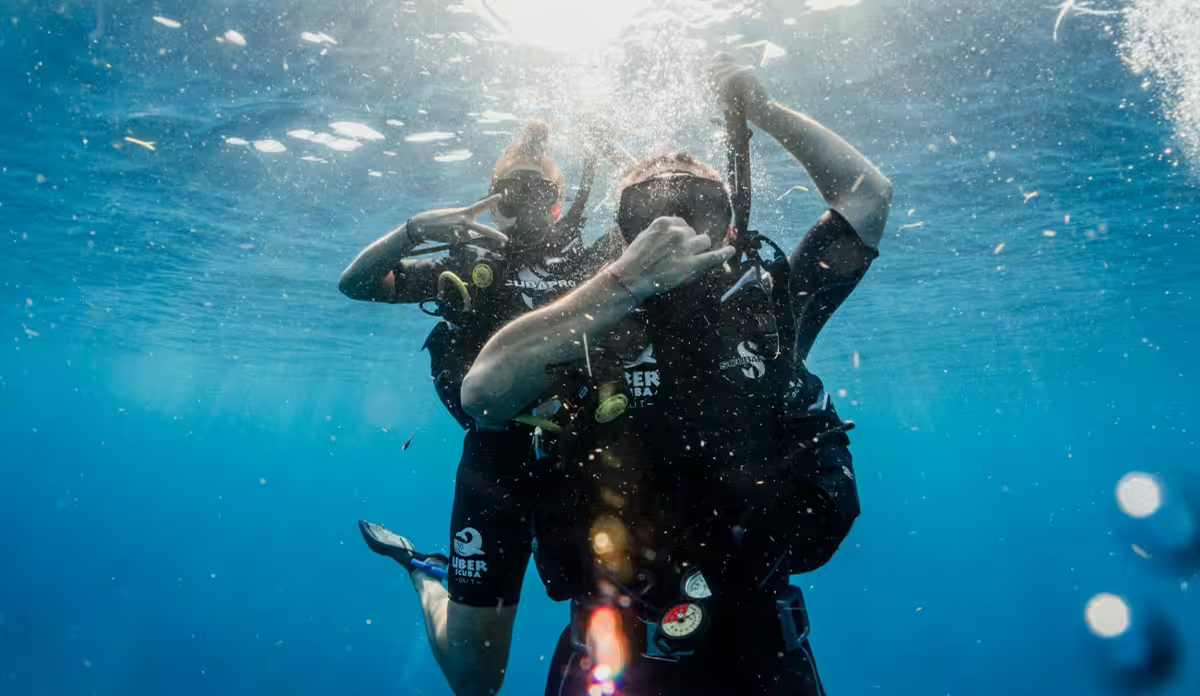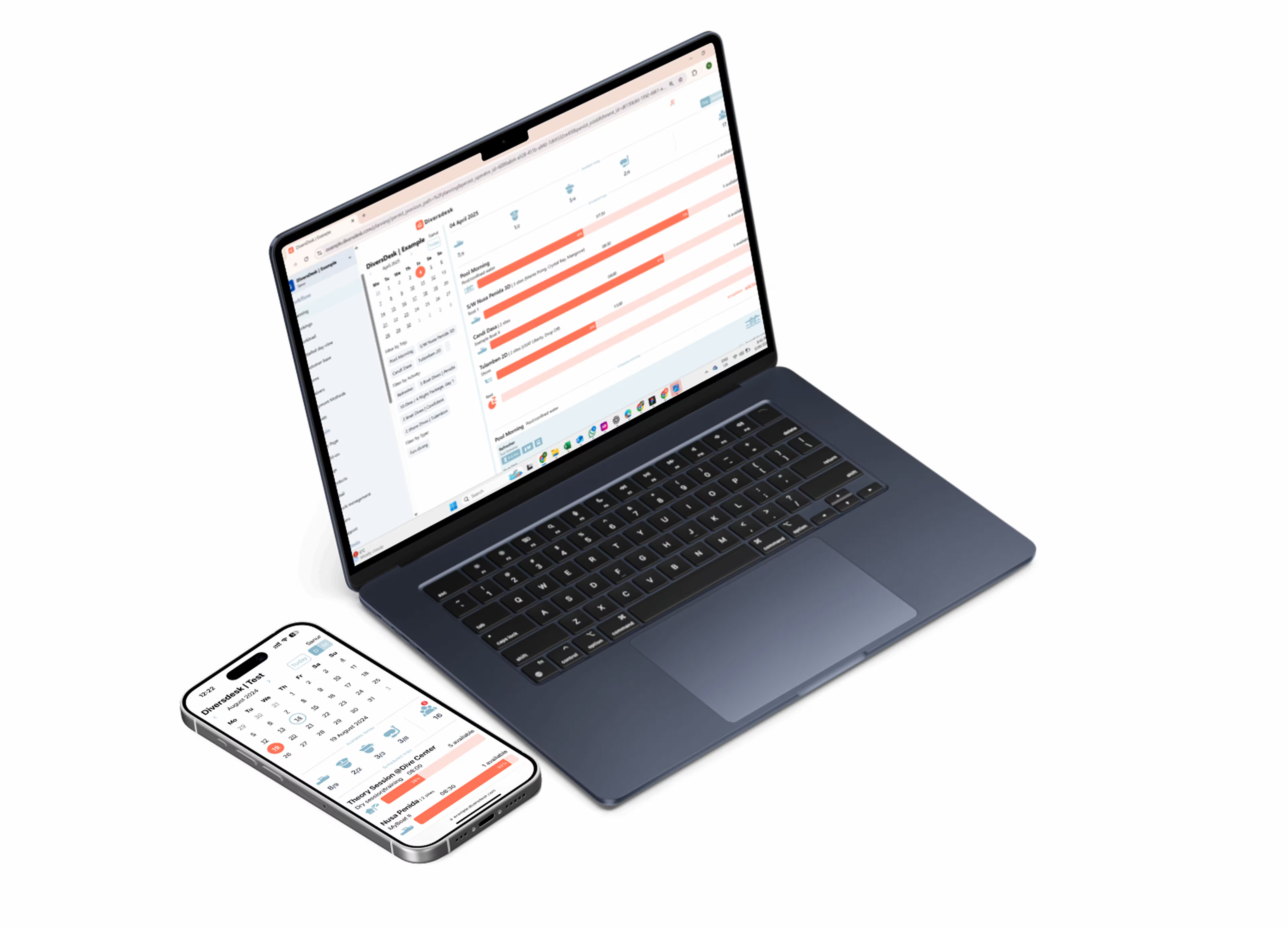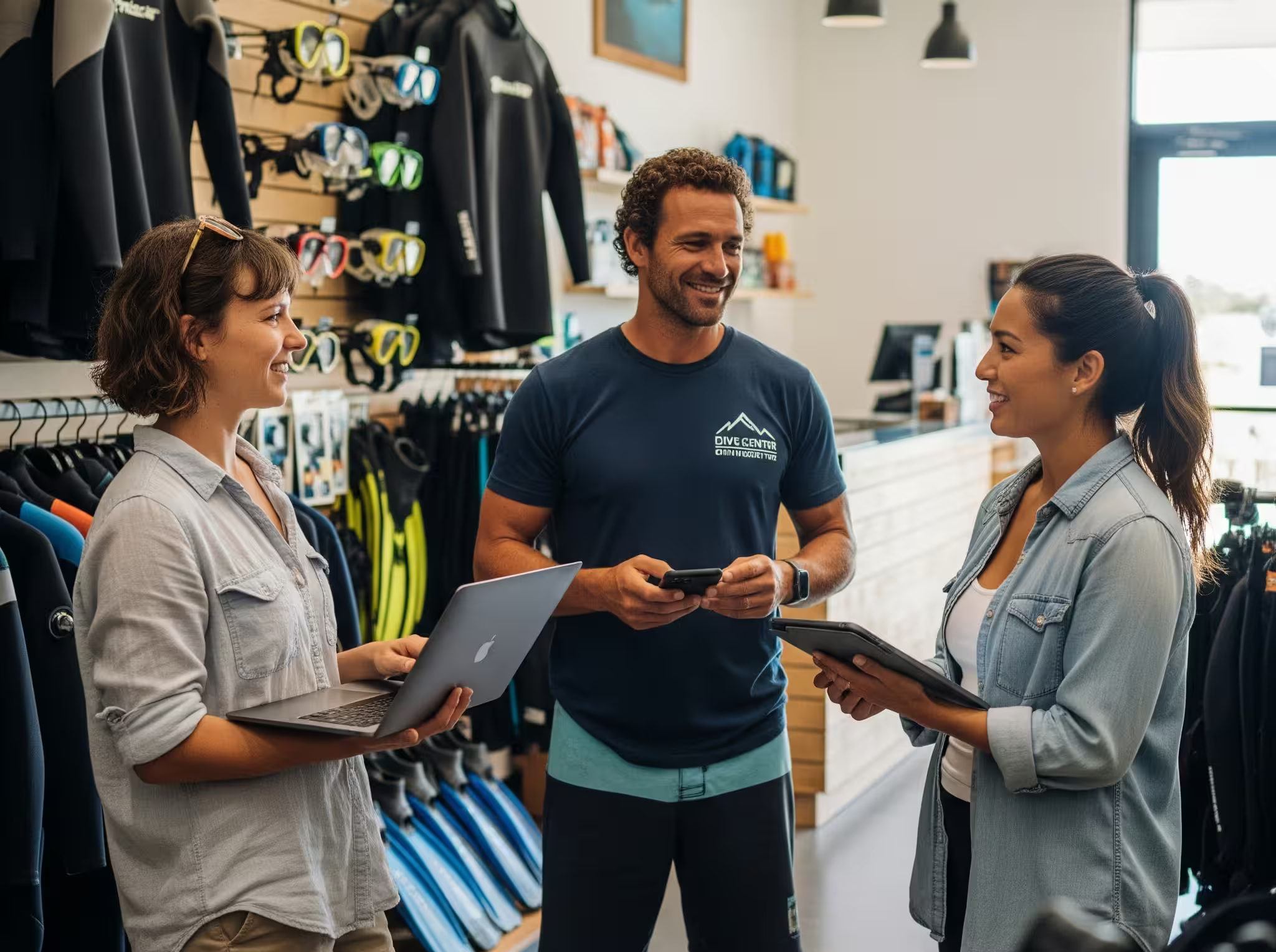1. Why Upselling Matters in Bookings
In the competitive world of scuba diving, dive centers are always looking for new ways to improve customer satisfaction and grow revenue. One highly effective approach is offering add-ons and extras during the booking and registration process.
Upselling isn’t just for airlines and hotels—it’s just as powerful in the dive industry. Every guest has different needs, preferences, and expectations, which is exactly where the opportunity lies. Instead of offering a one-size-fits-all package, dive centers can personalize the experience by letting customers choose the extras that matter most to them—whether it’s a photo package, private guide, or gear upgrade.
As explored in this Nature study, consumer decision-making improves when individuals are given personalized options, especially in service-oriented experiences. When done right, upselling not only raises your average order value but also improves the overall experience by adding flexibility and convenience. It’s not just about earning more—it’s about offering more and giving a better overall dive experience.
2. From Gear to Experience: Rethinking Add-ons in Modern Dive Centers
In a dive center, not every guest wants the same thing. Some are new and want extra support. Others want to upgrade their gear or capture the moment. Offering extras gives people the freedom to shape their experience based on what matters to them.
The idea of upselling in the dive industry has moved far beyond just offering gear rentals. Sure, equipment upgrades like dive computers or underwater cameras are still relevant—but the real shift is toward experience-based add-ons. Services like private guiding, one-on-one instruction, or pre-dive refreshers are becoming more common, especially for guests who are returning to diving after a break or who simply want a bit more attention.
And when these extras are offered at the right time—whether during booking or mid-activity—they feel like part of the service, not a sales pitch. The point isn’t to stack on charges. It’s to make the experience more flexible, more complete, and ultimately, more memorable.
3. How Diversdesk Makes Add-ons Easy and Seamless
One of the main challenges dive centers face is how to manage add ons without creating extra work. That’s where Diversdesk makes all the difference. Its built-in add-ons feature is designed to be as flexible and intuitive as possible—for both customers and your staff.
- No extra systems or apps needed: Add-ons are fully integrated into your Diversdesk account. You don’t have to juggle third-party tools or plug-ins. Everything you need is already part of your system, which means less setup and fewer things to manage.
- Easy to create and customize: You can set up your own list of add-ons—whether that’s Nitrox, a towel rental, a digital photo package, or a snack pack. These can be shown to guests during online registration or added manually by your team during the booking process.
- Streamlined customer experience: For your guests, the process is straightforward. They can see their options clearly, choose what they want in the registration form, and it’s all reflected in their booking automatically. No follow-up emails. No manual edits. Just a seamless flow from start to finish.
- On-the-spot flexibility: If a guest decides to add something last minute—like renting a torch or upgrading to a private guide—you can simply use the “add item” in the booking. It updates their booking instantly, keeping everything recorded and organized.
4. The Measurable Impact of Upselling Through Add-ons
Research across the travel and experience industries consistently shows that well-timed upselling can drive significant revenue gains. According to McKinsey, businesses that get personalization right can increase revenues by 10 to 15 percent on average, with some seeing lifts up to 25 percent depending on their approach. In the diving industry, this means you can unlock more value from each booking—without increasing your base prices—simply by offering relevant extras at the right time.
But the benefits go beyond just numbers. Effective upselling also improves customer satisfaction. As highlighted in this Hospitality Net article, modern travelers increasingly expect control and customization in their journeys. Guests who feel they’ve had the freedom to tailor their experience tend to report higher levels of enjoyment and are more likely to return. In many cases, offering simple choices—like private guiding for comfort-seeking divers or photography packages for memory collectors—can turn a standard trip into a personal, memorable experience. It’s a win for the guest, and a long-term win for the business.
5. Conclusion
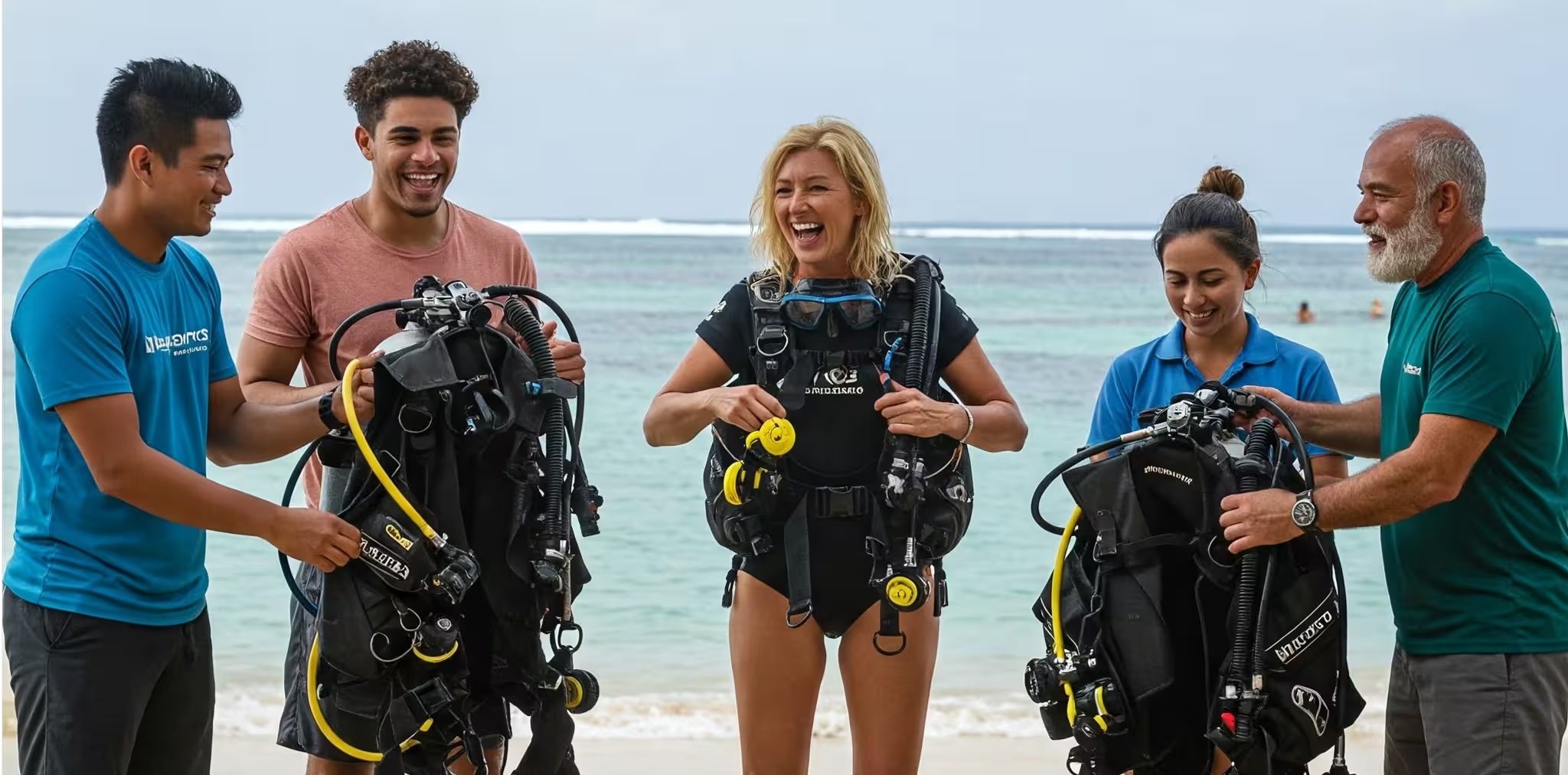
Integrating upsells into your booking and registration flow isn’t just a sales tactic—it’s a customer service opportunity. In my perspective, when add-ons are presented clearly and at the right moment, they don’t feel like an extra cost—they feel like an extra option. This small shift in how and when options are offered can have a big impact, giving guests the chance to shape their dive experience based on their needs, comfort level, or interests.
In my view, offering relevant add-ons is one of the most practical ways dive centers can deliver more value without complicating operations. With the right tools in place—like Diversdesk—it’s a smooth process for both your team and your customers. And at the end of the day, that’s what it’s all about: giving people more of what they want, while making your business stronger.

